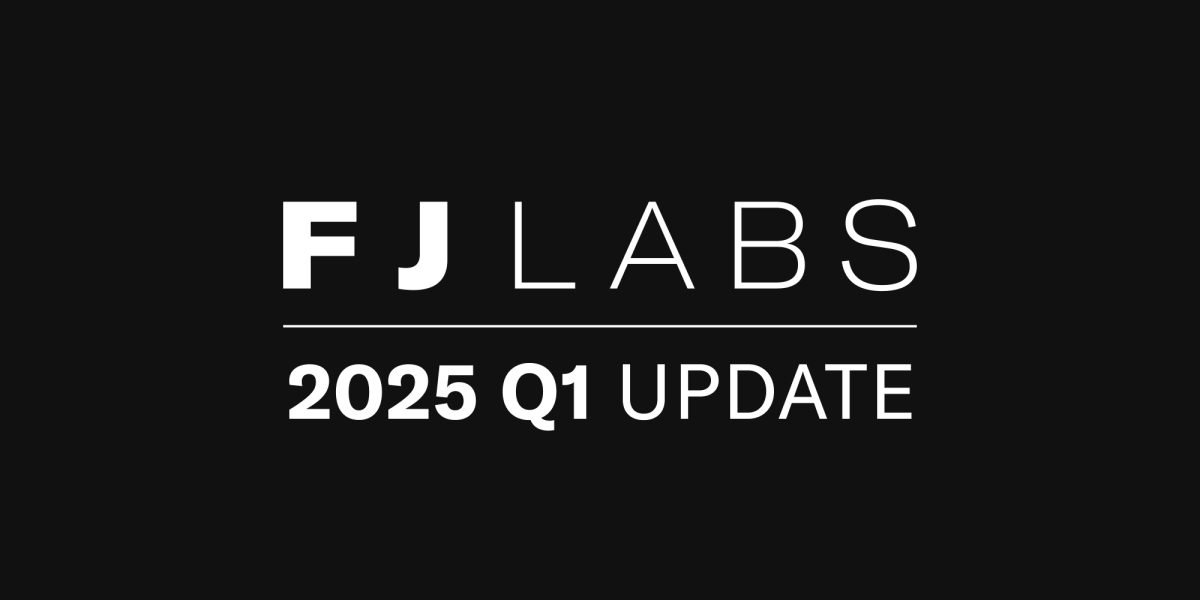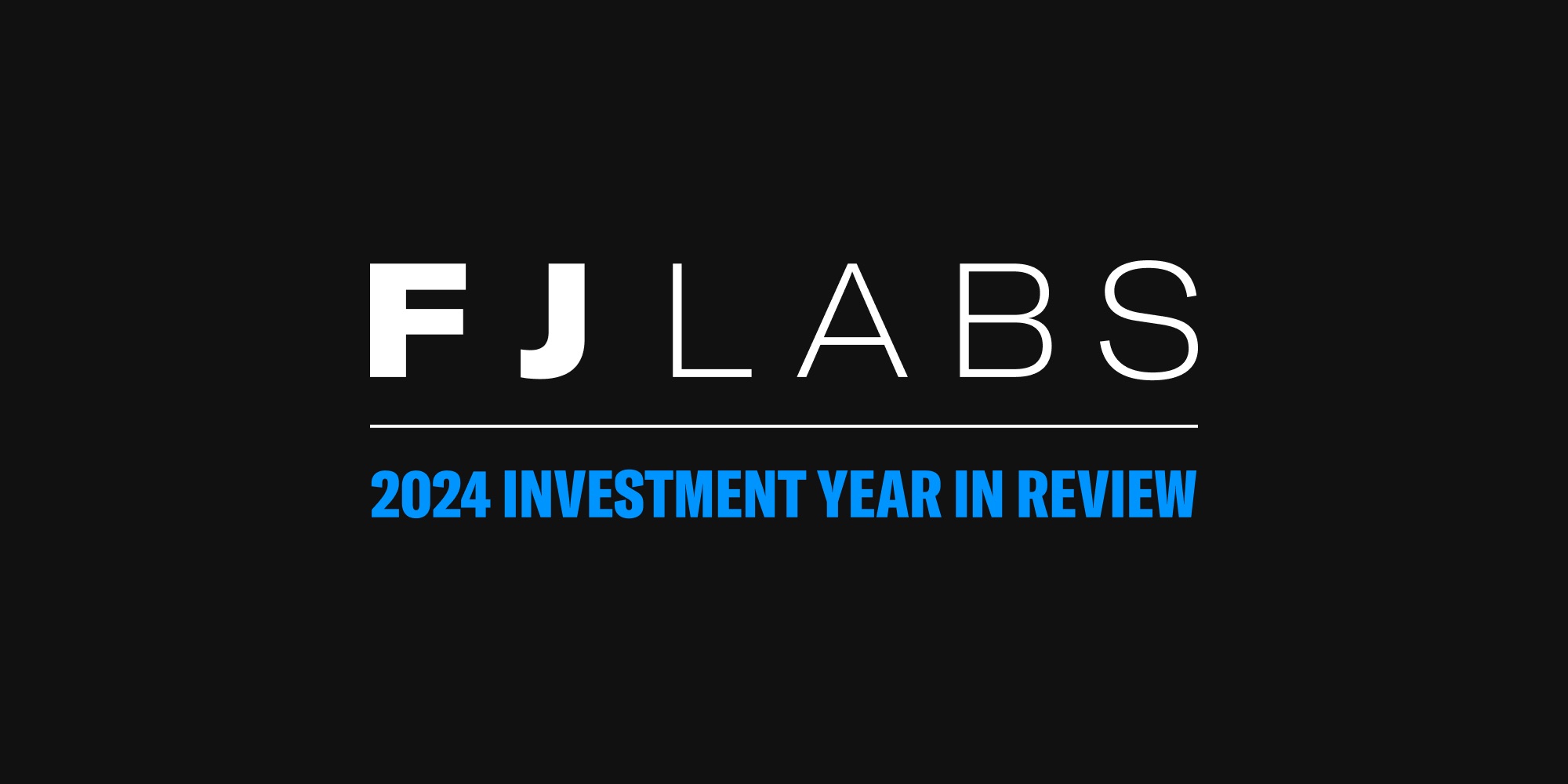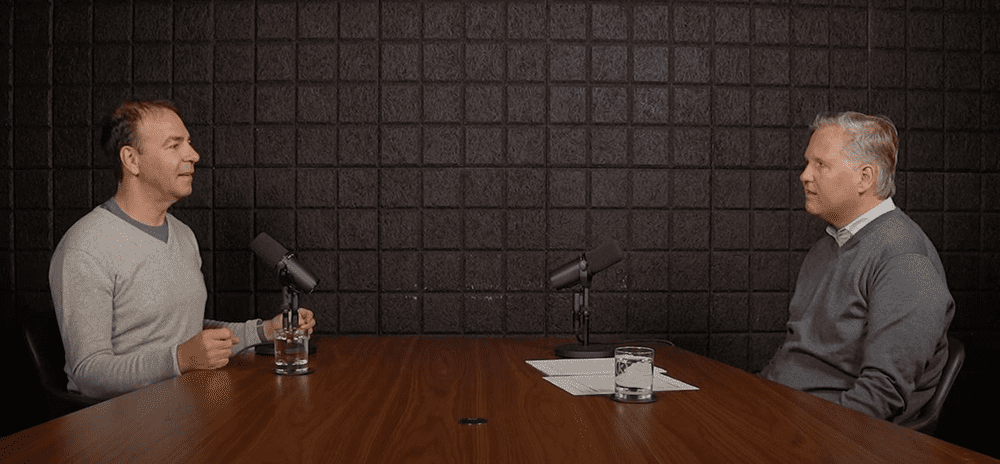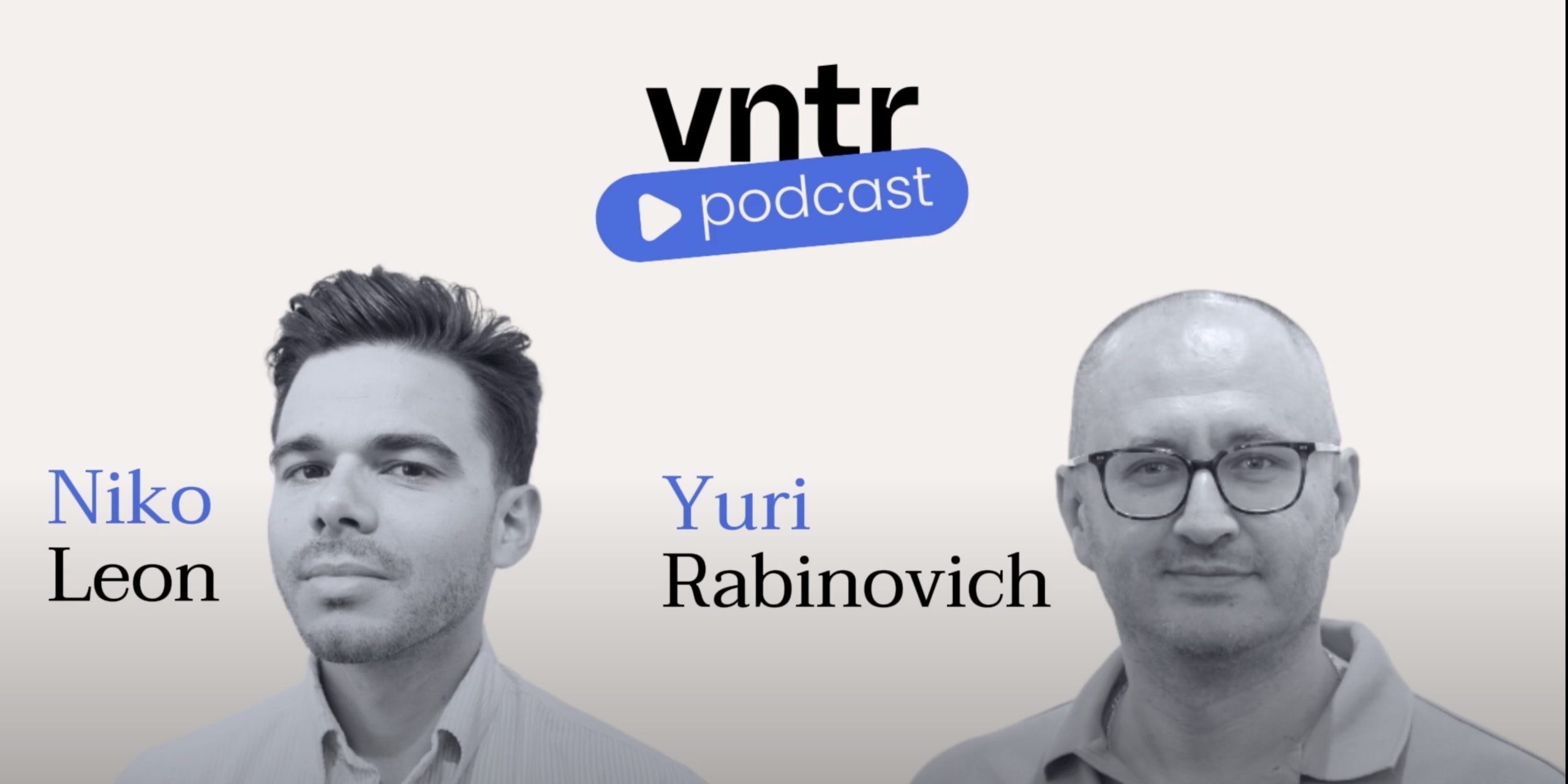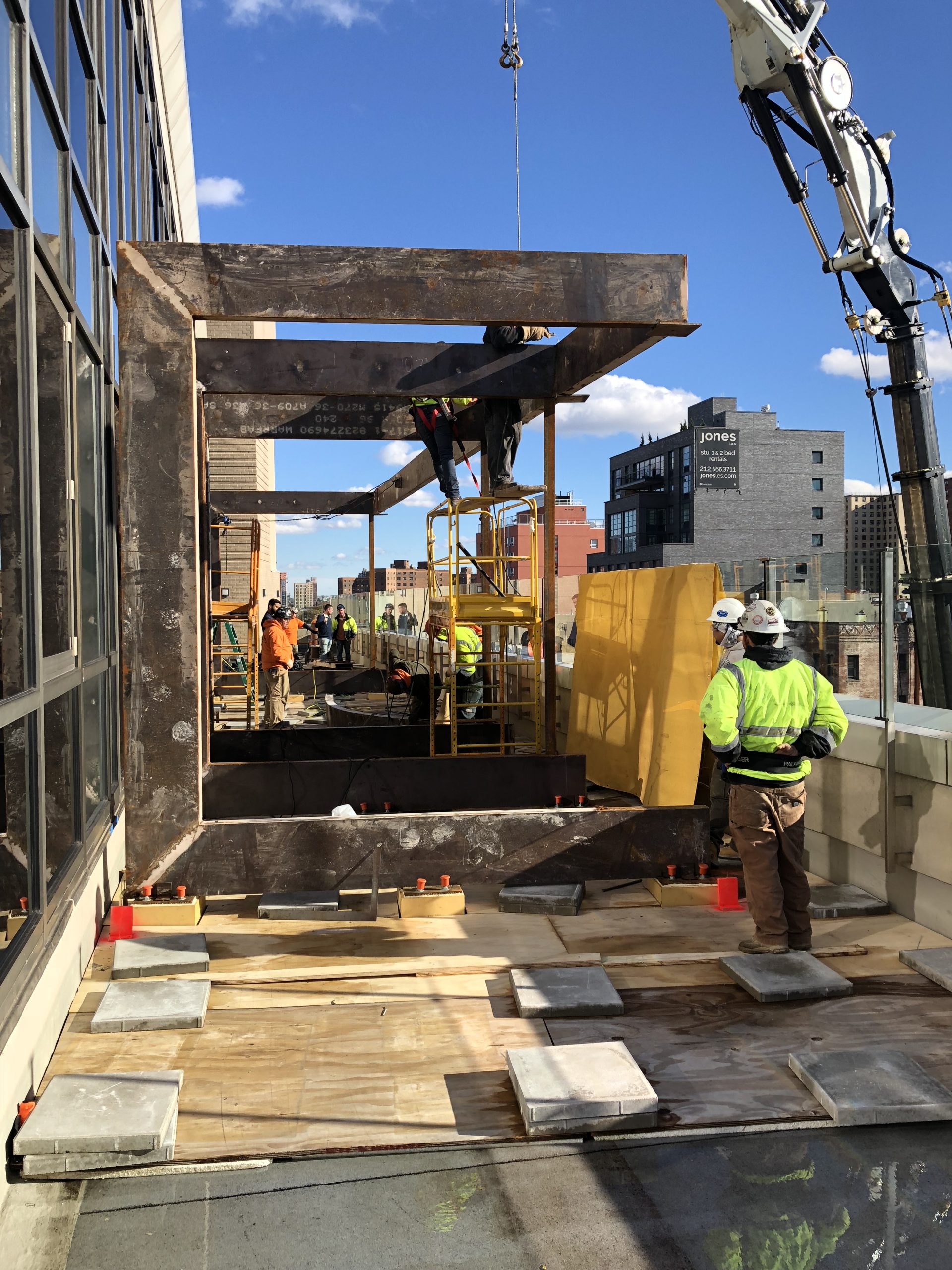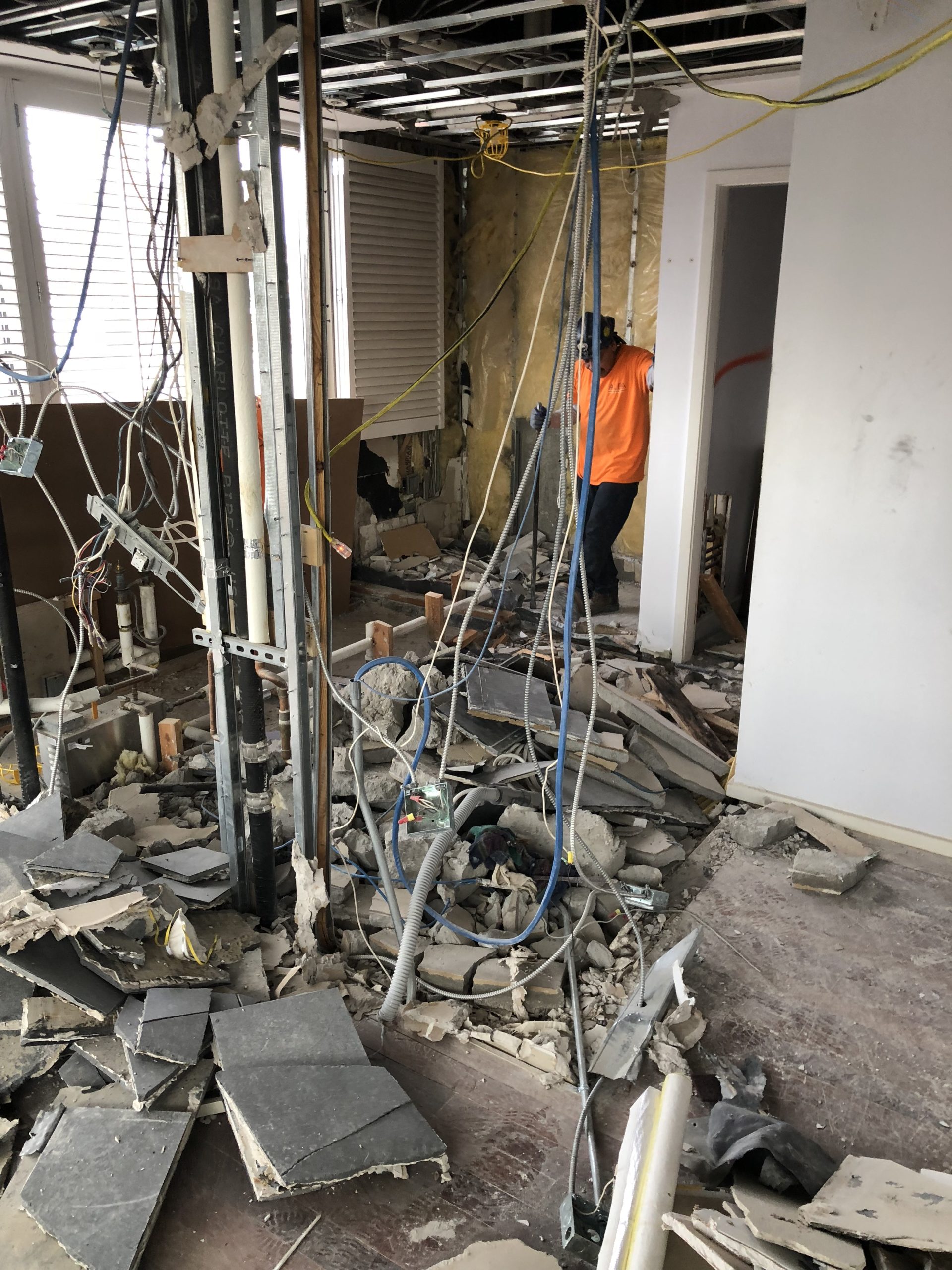我已經一年多沒有參加過 Ask Me Anything 會議了,這導致了許多關於各種主題的問題:巨集觀、市場、人工智慧、籌款、財富管理、教育、島嶼購物、印度、如何擺脫口音、探險旅行、氣候技術、風險投資狀況等等。
以下是我們涵蓋的關鍵問題:
- 00:01:17 地緣政治變化、關稅和特朗普政策將如何影響世界?
- 00:06:14 尋找和說服投資者的關鍵技巧是什麼?
- 00:08:44 您認為時尚市場的未來是什麼?Farfetch 等市場的倒閉對它有何影響?AI 在這些方面的作用是什麼?
- 00:13:19 您如何看待目前的最佳投資機會?鑒於目前的下跌,股市是否具有吸引力或仍然被高估?我不久前讀到您的非傳統財富管理方法。您現在如何分配 1000 萬美元?
- 00:19:21 我們每個月大約有15K的收入,我們可以籌集種子前資金嗎?
- 00:21:14 考慮到人工智慧的影響,您為孩子們推薦什麼樣的教育、學校、大學學位,以便他們為10年後的就業市場做好最好的準備?他們應該開始培養什麼技能?
- 00:26:46 您收到的最好的冷入站電子郵件是什麼?
- 00:29:39 如果你今天要完成學業,你會加入什麼樣的工作或公司,以最好地培訓自己,以便以後創辦一家科技創業公司?如果目標是學會以強度和結構工作,那麼像麥肯錫或投資銀行這樣的地方是否仍然有意義?
- 00:32:40 作為一名剛畢業的法國畢業生,擁有金融學士學位背景,您認為當今哪些國家在經商便利性、人際網路、潛力等方面提供了最多的學習機會?
- 00:33:34 您何時發佈更新版和新版 Fabrice AI?我如何在法國的科技社區建立人脈?
- 00:38:30 Fabrice,有什麼令人興奮的旅行嗎?您個人最喜歡 AI 的什麼用途?
- 00:42:39 如果我的品類中存在現有企業,是否還有機會進入市場?
- 00:45:51 是什麼讓你決定選擇特克斯和凱科斯群島而不是另一個島嶼?
- 00:52:57 你最喜歡印度的哪個地方?
- 00:55:48 你是怎麼失去法國口音的?你的秘訣是什麼?
- 01:00:52 您的氣候相關投資機會目標清單上有哪些?
- 01:02:55 您是否完成了您想穿越格陵蘭島的長途徒步旅行?
- 01:06:03 如果你今天正在建立一家像 Zingy 這樣的科技公司,考慮到有很多創始人在 $500M 退出中幾乎沒有賺到錢的例子,你還會籌集風險投資還是引導它?
- 01:08:39 對於找到適合市場的產品但在 2023 年耗盡資金但「倖存下來」的家庭護理市場創始人,您有什麼建議?
- 01:10:55 AI 的未來大趨勢是什麼,尤其是消費者使用?
- 01:13:12 對於個人或小型零售,您認為哪些 AI 工具今天值得付費訂閱?
- 01:13:49 您在未盈利初創公司的創始人中尋找什麼?
- 01:14:34 在看到宣傳資料時,VC 最大的拒絕是什麼?最大的綠旗是什麼?與 VC 人冷連接時的危險信號是什麼?
- 01:16:17 您能談談交叉基金的機會嗎?
- 01:18:43 你對印度的風險投資機會有什麼看法嗎?
- 01:19:29 我應該聘請 CTO 還是 CFO?
- 01:20:23 您認為像 Alan(法國獨角獸)這樣的公司在近 10 年裡籌集了 5 億歐元,但仍然無利可圖,獲利率低,價值 4.5B 歐元,未來會怎樣?
- 01:21:15 從您的角度來看,自由顧問是當今最容易推銷的技能或服務類型?
- 01:22:20 比特幣在 2030 年會值多少錢?
- 01:26:35 您如何看待 WorldCoin 等舉措?
- 01:26:43 喜歡多明尼加共和國的槍戰故事。在你的冒險中,你還有其他瘋狂的腎上腺素飆升的故事嗎?
- 01:30:27 您更喜歡重複創業者還是首次創業者?
- 01:32:22 為什麼為時尚市場籌集資金這麼難?
- 01:33:28 在您看來,創始人最重要的特質或技能是什麼 – 情緒穩定、能夠處理極端壓力,完全是另一回事?
- 01:36:11 您能不能在紐約吃午飯,這樣我就可以把我所有的問題都帶上 45 分鐘?
- 01:37:13 是什麼讓利基市場脫穎而出並在全球範圍內大放異彩?
- 01:39:44 人工智慧對人類有危險嗎?它會增加失業率嗎?各國是否應該制定規則來防止這種情況發生?我們能否掌握可能超出我們能力範圍的東西?
- 01:46:46 您對 vibe 編碼趨勢或實際轉變有何看法?
如果您願意,可以在嵌入式播客播放機中收聽該劇集。
除了上述 YouTube 影片和嵌入式播客播放機外,您還可以在 iTunes 和 Spotify 上收聽播客。
抄本
大家好。我希望你度過了美好的一周。所以,自從我做 Ask Me Anything 以來已經一年多了,當然,世界已經發生了很多變化。人工智慧發展如此之多,政治和地緣政治以及整個世界也發生了很多發展。所以,我認為現在是時候基本上回答你的問題了,評估我們的情況,是的,看看事情會如何發展。
所以,說到這裡,我們開始吧。歡迎來到第 48 集。問我任何事情。
因此,像往常一樣,請隨時在聊天中提出問題,我會在問題發佈時即時回答。首先,我將從預先提出的問題開始。人們通過電子郵件給我發郵件,給我發一份時事通訊,說,嘿,你希望我報導什麼主題?
首先, [00:01:17] 我想問問您關於所有地緣政治變化、關稅、特朗普政策將如何影響世界貿易以及這將創造哪些機會的看法。 如果您想分享這個,那就太棒了。所以很明顯,所有的恐怖主義政策都發生了很多變化,也有很多破壞。
我的意思是,有趣的是,當特朗普當選時,我猜科技界的很多人可能都希望,嘿,市場會再次重新開放,對吧?就像過去幾年在人工智慧之外的問題一樣,沒有真正的投資。
壓縮非常嚴重,沒有退出,沒有併購,沒有IPO。併購主要受到反壟斷法規的阻礙,所以 SCC、FTC、FCC 和 IPO 只是 IPO 市場,IPO 視窗關閉,所以我們希望它能開始重新開放,事實上,我們的投資組合中有幾家公司,如 Klarna,已經申請上市。 在25年初。
但是,隨著當時的所有關稅、噪音和市場、不確定性和對未知情況的恐懼,IPO 視窗關閉了。他們至少推遲了IPO,不知道他們是否永遠取消了它。因此,事情並沒有完全按照我們希望的那樣發展。現在要回答我被特別問到的問題是,我認為發生了什麼?
我試圖在決策者假設他們不是白癡時,總體上給予適應政策制定者的好處。所以,如果我假設他們不是白癡,他們為什麼要做他們正在做的事情呢?因此,我經過了漫長而艱苦的思考,以下是我想出的合理的潛在解釋,說明為什麼這可能是有道理的。
所以我認為特朗普把自己看作是和平締造者。他想在烏克蘭實現和平。他想在中東實現和平。我認為他現在或現在面臨的問題是,他就像,你看,從來沒有人給普京一個退出策略,對吧?就像如果普京做出任何讓步,讓烏克蘭一無所獲,也許他自己的安全可能會受到威脅。
我們能否創造一個環境,讓他們有機會做出讓步,分一杯羹?所以,從某種角度來看,我想,嘿,也許我們是在假裝與我們的盟友作戰。我們也許不告訴他們,因為如果你告訴他們所有的切片、洩漏等,事情就會出來,我們會對所有盟國徵收關稅,以創造更多的共同點,給他們一個談判和做出讓步的機會,從而最終達成最後一部分。
現在,我認為這是一個糟糕的策略,因為我認為你不想與不可信的普京談判。但是,如果這是你的意圖,也許你會嘗試一下,如果它不起作用,你知道嗎?你從歐盟、加拿大、墨西哥等任何地方獲得象徵性的特許權。
也許你把所有東西都回滾了。所以我希望這些事情現在是暫時的。在政治界,這個問題是暫時的,也許是一兩年,而不是三個月。同時,為了回答具體的問題,比如正在創造的機會是什麼?嗯,很明顯,你知道,你要考慮如何移動供應鏈,考慮如何處理成本結構,你知道,你是像我們看到的一些公司那樣在岸外包,還是把供應鏈運出中國?
你知道,我們是Quince的投資者,這是一個負擔得起的奢侈品市場,他們在三年內將其從0到0億碾壓。他們將達到數十億美元的運行速度。從歷史上看,他們從中國採購所有東西。在三個月內,他們將整個供應鏈遷出中國。
現在,如果 de Minimis 繼續對 800 美元以下的訂單提供 de Minimis 豁免,他們將受益匪淺。但即使不是,因為他們是成本最低的供應商,我懷疑他們,他們將繼續做得很好。所以我懷疑低成本、靈活的生產商,所以世界上的初創公司將繼續在這個世界里做得很好。
話雖如此,我。由於全球地緣政治巨集觀經濟的不確定性,籌集風險投資變得更加困難。風險投資公司更難籌集風險投資。在出現退出和 IPO 之前,飛輪並沒有真正打開。因此,它仍然會很複雜,但希望這在未來幾年以不太具有破壞性的方式發揮作用。
它將創造機會。但我懷疑,顛覆者,即初創公司比康明斯更有能力利用這些機會,因為它們行動迅速,成本結構較低。我看看。我們收到了一個問題,然後我將討論更多的電子郵件問題。
所以 Onur 和我不打算提及你的姓氏,以避免完全折磨我怎麼說。 [00:06:14] 尋找和說服投資者的關鍵技巧是什麼? 因為我有一家名為 Cusinea 的初創公司。它是一個面向餐廳員工的人工智慧在線培訓平臺,也是一個面向餐廳的行銷社交媒體平臺。在正式啟動之前,我們已經與 6 家餐廳合作。我目前正在尋求投資。
我想描述一下你在種子前階段和種子前階段所處的位置。你知道的,發佈前或類似的概念驗證。老實說,你需要籌集的前五十萬美元仍然是,主要是,沒有多少基金專注於此。種子前。
有一些,比如 Afore A-F-O-R-E 就是一個例子。印度有 iSeed,我的意思是,雖然不多,但非常非常少。老實說,在洛杉磯,最先播種的是傻瓜的朋友和家人。這就像去找支援你的更富有的朋友,支援你說,嘿,我需要 5-10K。
問題是,你知道,50 乘以 10K、100 乘以 5K 實際上已經足夠預播了。此外,您需要意識到它比以往任何時候都便宜 建立一家初創公司.你知道,當我構建我的第一家初創公司時,我需要一個類似於 Oracle 資料庫伺服器 Microsoft Web 伺服器。
我需要構建自己的數據中心,該數據中心是開源前、Rackspace 數據中心之前的數據中心。這甚至在之前,顯然是雲和現在的 AI。如今,你可以用 15K 來構建任何東西,然後你可以用你籌集的任何資金來證明你籌集的幾百 K 來證明產品適合市場。
但你的目標是獲得種子級別的牽引力。所以我會盡量達到每月 20K 的凈收入。但是,如果您收取 SaaS 費用,您將獲得 20K 的 MRR,而不是 ARR。有了這個,你就可以去籌集種子,然後你可以從 VC 的證明產品市場契合度中籌集 2-300 萬。
同樣,如果您在一個市場中,您知道您希望每月的 GMV 達到 150K。如果你有 15% 的接受率,同樣的事情,你有 20-30K 的凈收入,你證明產品市場適合,然後你去籌集像我們這樣的 300 萬人,除非你是第二次創業者,否則他們不太可能,你之前已經證明過投資你的種子輪,除非你已經證明瞭這一點,通過以非常低的上限到達那裡。
來自 Twitch 上的 notionXarma 的第二個問題。 [00:08:44] 我想問你一下,你認為時尚市場和時尚的未來是什麼,以及它如何影響 Farfetch 等市場的衰落?補充一下,AI 市場在這些市場中的作用是什麼?
所以這很有趣,因為特別是在美國的時尚市場,也許讓我全屏顯示一下,你會看到更多的問題嗎?
人工智慧市場,對不起,不是人工智慧,時尚市場做得不是很好,對吧?波什馬克?真的,真的,我不知道真的,真的市值在哪裡。它實際上不是很高,因為成本結構太高了。因此,從外部來看,時尚市場類別可能表現不佳。
但有一個反例。有一家公司在歐洲徹底粉碎了它,它重新定義並重新發明瞭這個類別。我非常自豪和高興地說,至少從轉型開始,我就是公司的早期投資者。那家公司叫 Vinted V-I-N-T-E-D,所以 Vinted,實際上目前由我在 OLX 的得力助手經營。
他就像那個修理工。當肯亞出了什麼問題時,他會去修理。他們與這家總部位於立陶宛的初創公司不同,他們最大的市場大多是法國和英國。他們進行了多項創新。第一個創新是不是向賣家收取 10-15% 的傭金,而是完全免費,完全免費出售,完全免費購買。
他們說,如果你是買家,如果你想要可選的託管、運輸和付款,我們會為你做,我們會收取任何費用,2 歐元或 2 美元加 5%,每個人都在這樣做。因此,他們的有效服用率為 10%。有趣的是,其中一些數位是公開的,所以我將給出上一輪的公開數位。
去年,他們的 GMV 為 60 億,淨收入為 6 億。我認為他們的自由現金流約為 8000 萬。他們在英國的 EBITDA 獲利率為 50%,在法國的 EBITDA 獲利率為 45%。他們正在像這樣生長。現在,他們進軍義大利、西班牙,就像他們在歐洲發展一樣,他們正在進入奢侈品領域。
而且因為他們的成本結構最低,因為他們的拿牌等級最低,所以他們在這種買方付費模式下做得非常好。所以時尚真的很好。現在 AI 在這裏發揮著多種作用。AI 扮演的第一個角色是 Vinted 可能是第一家真正的 10 歐洲公司。
過去,當你在歐洲創業時,你就像一家法國公司、德國公司或英國公司。當你推出時,你實際上是在開設一個新的辦公室,並擁有一個不同的網站,而且你不會在現有的網站之間進行銷售。所以他們所做的是,他們意識到我們現在可以非常便宜地在歐洲跨境運輸。
所以你,他們所做的是,法國的清單實際上是由 AI 自動翻譯的,並在西班牙和義大利上市。當義大利的買家想與法國的賣家交談時,所有對話都會自動翻譯。因此,您可以自動翻譯清單、自動翻譯對話,所有這些都由 AI 完成。
上市過程也由 AI 進行了大規模改進和完成。因此,當您現在發佈商品時,AI 將識別類別、建議的商品、價格等。因此,人工智慧被用於改進照片的背景,以提高銷售率,自動化使用者之間的對話並提高銷售率。
所以 Massive Disruptive 和 Fashion 表現非常好。順便說一句,時尚市場領域還有其他創新,而不僅僅是在商品買賣方面。我們剛剛投資了一家名為 Pickle 的公司。Pickle 是一個租賃市場。所以認為它租用了跑道,但出租了。在紐約,就像所有 Z 世代和千禧一代女性一樣,基本上用它來製作連衣裙等。
它的效果非常好。所以我會說 Vinted 和 Pickle,這可能是時尚界發生的兩個最好的例子。這些公司還有更多的增長空間。如果 Vinted 在未來幾年內成為一家 20-30 甚至 50 億美元以上的公司,我不會感到驚訝。
我非常看好這項投資。我們將繼續投資,即使我們現在的估值要高得多。我們全力以赴。
Mitch,在 Twitch 上。 [00:13:19] 您如何看待目前的最佳投資機會?鑒於目前的下跌,股市是否具有吸引力或仍然被高估?這是一段時間前關於非傳統財富管理方法的事了。您現在如何分配這 1000 萬美元?
答案是,這取決於你是誰,你的生活需求是什麼,也取決於你在生命週期中所處的位置,對吧?就像如果你 80 歲了,投資風險投資或者你 10 年都賺不到錢對我來說沒有意義。
但總的來說,我堅持我的編織,就像我投資 Venture of courses 的原因一樣。我知道我在做什麼。在過去的 25 年裡,我每年的回報率為 30%。我沒有其他可以投資的地方。我認為這非常安全,因為技術和軟體正在吞噬世界,我知道我在做什麼,而且我有一個非常非常多元化的投資組合。
所以我喜歡投資風險投資,投資科技公司,但我不會投資特定的初創公司,對吧?如果你剛剛開始,你有 1000 萬現金,你會想,嘿,我應該成為天使投資人嗎?我會說可能沒有,因為你沒有交易流,所以你可能看不到最好的交易。
如果有的話,因為您沒有交易流程,您可能會看到最糟糕的交易。風險投資遵循類似於冪律的東西,其中排名靠前的交易佔所有回報。因此,除非您投資至少 50 筆交易,這可以保證您獲得一些不錯的交易,否則您很可能會虧損。
所以你不應該自己做天使投資。現在,如果你想給你的朋友一點錢,當然,我可能會分配。因此,如果你能接觸到像我們這樣的風險基金,而且我們並不難進入,我會在風險投資中分配相當多的資金。但同樣,您需要考慮風險基金,每三年調用一次資本。
三年後會有另一隻基金,三年後會有另一隻基金,所以無論分配什麼。順便說一句,我個人的配置是 10% 的國債、國庫券,你知道,你仍然產生了 4% 的完全安全,這就是你的現金管理,你用它來支付資本催繳等。10% 用於房地產。對我來說,房地產不是一種投資,而是一種消費。這是我住的地方,我有三棟漂亮的房子,就我而言,其餘的我都投入了風險投資,現在我把它投入了我自己的基金,因為我知道我在做什麼。如果我願意,對於大多數 1000 萬的人來說,你的房地產會更多,因為你,你,你想要居住的房地產的價值會更高。
也就是說,你正在利用它。所以,你知道,也許你可以有一棟 4-500 萬美元的房子,但你放股票,然後你可以把剩下的投資到國庫券上,你知道的,10-20%。然後是其餘的,我仍然更喜歡風險投資策略。如果您有長遠的眼光,您就不需要現金。但我會投資基金和多元化基金,比如 Box Group 或我們,任何可能更好的基金。
你無權訪問它。是的。標準普爾 500 指數,ETF。投資它,收工。永遠不要再看它了。或者你知道,事實上,我不,你看,我不關注新聞。我不會看投資組合。這是多年來註定要複合的事情。因此,如果您擁有 ETF 和標準普爾 500 指數,或者您擁有比特幣,是的,我可能會讓 5-10% 的加密貨幣進行投資。永遠不要看它。如果你想看它,每年的 1 月 1 日看它。除非您是交易員,否則不要看漲跌,而且您不應該是一名交易員。你不應該看它。所以大多數人,我會說,我不知道,也許你會去 20 歲。我,顯然,我很清楚,我不覺得科技或風險投資有風險。
所以我,我就像 80% 的風險投資、10% 的房地產、10% 的現金或國庫券。也許其他人應該是 30% 的標準普爾 500 指數、你知道的 ETF、10% 的加密貨幣。為了簡單起見,甚至可能只是 BTC。在加密貨幣領域,假設另外 20 或 30 個,而不是 20 個風險投資,20 個國庫券和 10 個房地產,也許差不多。
我的意思是,你朝那個方向起伏。現在它取決於現金需求、收入、工資等生命週期。但我很清楚我會怎麼想。但我不會積極交易,我不會專門投資於我自己的初創公司,因為你不會有足夠的錢,也不會有交易流。
好。我看看。下一個問題 Sheelagh Brady。根據您的經驗,您認為進入風險管理和安全領域的新平臺如何利用地緣政治環境來發揮其優勢?在您看來,公司應該將影響放在展示 ROI 上,還是您建議在現階段關注其他戰略角度?
有很多公司從事風險管理,所以我想瞭解您真正的核心差異化是什麼。或者,您之所以能夠降低成本,而且效果更好,因為您正在利用 AI 或追求非常特定的垂直領域。我不僱用這類公司。如果風險管理等,我認為,你知道的,它們就像鹽一樣。
這就像浪費錢。所以我可能是最不願意問的人。我可能是最不擅長問這個問題的人,比如,什麼,這是什麼。但是,如果你剛開始啟動這個過程,同樣的策略也適用於我。如何驗證商業創意?我與潛在客戶交談。
我測試他們是否重視這個提議。順便說一句,我們和他們中的50人交談過,而不是他們中的5人。我會說,好吧,如果我向你收取這麼多,你願意為此付費嗎?我基本上想嘗試讓這些試點開始,在我有一點產品市場供養之前,我不會籌集資金。
如果你甚至需要錢,對吧?它可能需要更多的現金流。生活方式諮詢類型的業務不僅僅是一個可擴展的風險業務。Sean 在 Twitter 上,感謝您接受此服務。嗯,謝謝你。我其實很喜歡做這個。喜歡頭腦風暴很有趣,看看人們在想什麼,在想什麼。
但我每年都會這樣做。也許我會每六個月左右做一次,以未來為基礎。
Yamini: [00:19:21] 我們每個月大約有 15K 的收入,我們可以籌集種子前資金嗎? 哦,當然。播種前。你可能在發佈前嗯,你是在談論 GMV 所售商品的價值,還是在說你的接受率是如果你的接受率是 10%,你每月賺 15K,這意味著你每月有 150K 的銷售額。
這實際上就足夠了。不僅適用於種子輪,實際上對於種子輪來說已經足夠了。是的,當然。您已經準備好進行種子前準備了。您甚至可能已經準備好接受種子輪,具體取決於商業模式和您定義的收入,對吧?因為一個賣任何東西的市場,一件衣服 100 美元,他們的收入不是 100 美元,他們的收入是他們收取的百分比,比如說 10%。
所以應該是 10 美元。但這要看情況。好吧。我在LinkedIn上邀請了您,很高興有一天在紐約見到您。偉大。但是,在我們等待下一個問題出現的同時,我將通過電子郵件發送預先發送的問題。有時,當我執行此作時,由於某種原因,當我按兩下視窗外時,檢視會發生變化,因此我將在一秒鐘內修復它。
嘗試在下一個流中解決這個問題。
很抱歉。誤按。我們會的。這在 45% 的獲利率下很煩人。好。所以你的意思是你每個月賺 7K 左右?是的。你現在做種子還為時過早,但你是種子前。但是,是的,你現在絕對應該加注。好。讓我回到問題上來。
來自 Rio 的問題。 [00:21:14] 考慮到 AI 的影響,您為乏味的孩子推薦什麼樣的教育、學校、大學學位,以便為 10 年後的就業市場做好最好的準備?他們應該開始培養什麼技能?
你知道,這實際上真的很有趣,因為學校,假設你在讀高中,我發現高中在思考讓人們為就業市場的未來做好準備方面做得真的很糟糕。
坦率地說,對於未來的生活,對吧?就像你高中畢業時,假設你不去上大學,你應該知道如何報稅。你應該知道如何在做損益表時具備基本的財務管理技能,你知道,好吧,每個月我都賺這麼多,花這麼多,我的現金流是正的還是負的。
你應該有這些非常基本的,信用卡是如何運作的?你知道,如果你不及時付款怎麼辦?您應計多少利息?您如何像基本資訊一樣保存,例如 401k 的工作原理?你怎麼樣,所有這些基本的生活技能絕對應該在高中教。
我認為許多學校也對 ChatGPT 採取了錯誤的方法,顯然,與 AI 合作將成為未來一項關鍵的寶貴技能。因此,你在學校使用人工智慧做家庭作業的想法是愚蠢的。現在,任何學生都不應該只讓 GPT 寫這篇文章。
順便說一句,如果你這樣做,結果會很糟糕。但他們絕對應該將其用於研究,並且絕對應該使用它來提高他們的家庭作業品質。因此,學校做得非常糟糕。現在,讓我們先去大學看看。你甚至應該上大學嗎?
我認為答案是,這要看情況,對吧?就像如果你是一個有上進心的人,你現在可以獲得世界上最好的教育,有點免費,對吧?就像你可以去 Coursera 一樣,你可以去 YouTube。您可以存取線上提供的所有不同產品。
如果你有自我激勵能力,你實際上幾乎可以自己學習所有東西。當然,問題是你沒有血統,對吧?你沒有度結構,它是一個信號設備。有趣的是,信號設備在未來變得越來越不相關。
因此,當我的公司僱用程式師時,我們實際上甚至不會看你的簡歷。你上了什麼學校,你的成績。從字面上看,它就像程式設計測試、智商測試或能力測試。你適合嗎?通常情況下,最優秀的程式師實際上是那些從 5 歲起就開始編碼的人,他們在印度或其他任何地方,但就像那裡或孟加拉國一樣,他們沒有去哈佛或麻省理工學院,這已經不再重要了。
是的,在其他類別中並非如此。你在學校學到了很多其他東西。從管理自己的日曆到社交,再到建立相關性技能,再到建立自己培養的信譽。對於量化程度較低的工作(如程式設計),它是一種信號機制,對吧?
比如,如果你想參與業務或銷售等,更難評估你會缺席多好,你知道測試的月份,或者喜歡僱用你看看它是否有效。因此,我們利用這些招聘,這些學校就像信號裝置,以及你對紀律性和才華的評分。
所以它不會很快消失。那麼,如果可以的話,我還會去像桑福德、麻省理工學院和普林斯頓大學等那樣嗎?是的。可能不會去。我在那裡學習呢?老實說,這並不重要。在我自己的生活中,我仍然偏愛數學、工程學和計算機科學之類的東西,但我認為經濟學很好地解釋了世界的運作方式。
我確實認為即使是像哲學這樣的東西也是有用的。但這有必要嗎?絕對。不。首先,你知道的,這個領域,不管怎樣,獎學金,這些孩子是如此聰明,他們是如此領先於時代,他們的智商如此之高,老實說,他們不會從上大學中受益。但對大多數人來說,情況並非如此。
大多數人確實從上大學中受益。如果你屬於特定類別,比如我程式設計或其他什麼,SEO,只要你能做到,如果你已經做了 15 年,你不重視其他任何東西,不一定是必要的,所以。比以前更細微差別。去二線大學可能會變得不那麼有價值,因為沒有品牌。
你學到的東西可能不會,不會比你上網更好,如果你有紀律,你去自學和 Coursera、YouTube 等。我的意思是,這太令人震驚了。就像為了好玩一樣,我自己也這樣做。就像我是茶一樣,我正在學習我不知道的東西。只是因為我覺得這很有趣,就像我去年構建我的 AI 的方式一樣,我什至沒有使用,你知道的,Cursives 或 Lovable.Dev 等,現在存在的世界產品。
有很多東西要學,你可以自學。那可能是,那可能會有所説明。我之前提到的其他所有事情都是如此。但是有一個迫使你去做的結構,比如上大學,這是相當有説明的。所以,你知道,我想答案往往是在生活中,這取決於。
這取決於你的個人生活環境,你在哪裡,你要去哪裡。但是,是的,有很多學習和變得出色的機會。
Ani Amar: [00:26:46] 您收到的最好的提取電子郵件是什麼,最終導致了一次介紹性會議? 因此,我們是少數幾家真正關注冷門的風險投資公司之一。
就像我認為,如果你向紅杉 capital.com 或其他交易發送交易,我敢肯定它會進入自動刪除黑洞,從來沒有,甚至沒有人看過它。我們一些最好的交易被稱為入站電子郵件,創始人在LinkedIn上向我發送InMail。LinkedIn,除非你的電子郵件裡有。
如果你有我的電子郵件,你可以把它發送給我,但要麼直接是我的電子郵件,要麼是通過LinkedIn的郵件。他們說,你看,我不是一個傳統的創始人。我沒有去斯坦福大學或麻省理工學院或其他什麼學校,但我已經在這個領域工作了很多年。順便說一句,我們有這種級別的牽引力,就像 B 系列或 C 系列的牽引力一樣。
但是因為我們在貝洛奧里藏特,或者因為我們在美國的非傳統地理區域,我們位於紐約州北部,我們無法籌集資金。我們的聯繫不是很好,但我有真正的商業,真正的工會經濟學。這是我的牌組,你知道的,我們見面了,你讓我很容易就答應了。
是的,你給了我我需要的所有資訊。所以我有套牌。我一直在經濟學領域,我有牽引力。我有意義的牽引。我理解你的問題,那就是你一直無法籌集資金,因為你與那個風險投資世界沒有聯繫。你沒有去桑福德。你的朋友不在 VC 中,等等。
您甚至可能沒有被富有的銀行家和顧問包圍,他們可以為您提供我們之前討論的 5-10K 種子前資金,對吧?喜歡。原因是如果你去了其中一所大學,很容易獲得種子前資金。就像你所有的朋友都變成了醫生、律師、顧問。
他們都能負擔得起給你 5-10k,而且你已經夠用了。您就是您自己。你知道,你是在貝洛奧里藏特而不是聖保里奧,也許不是那麼多。你在紐約州奧爾巴尼,也許沒有那麼多。所以我們有幾個這樣的例子。巴西有一家叫 Milus 的公司。我們投入了驚人的牽引力。
我們幫助他們籌集資金,他們最終上市,我們做得很好。TCG Players,這家來自可選舉的 Pokémon 和 Magic 的公司,位於奧爾巴尼的聚集市場似乎完全非傳統。鑄造廠的背景是一位漫畫書店老闆。他只是構建自己的軟體,因為它滿足了他的需求,然後他,他把它帶到了所有其他漫畫書或賺錢者身上,並創造了一個巨大的市場,但在雷達下,不是一個被認為性感或足夠大的類別。
但最終我們以 3 億的價格在 eBay 上賣掉了它,並做了額外的工作。所以給我發一個LinkedIn InMail,讓我輕鬆一點,這意味著確保你包括幻燈片、牽引力、我所知道的所有資訊,以決定是否值得開會或對話。
Green18: [00:29:39] 如果你今天要完成學業,你會加入什麼樣的工作或公司,以最好地培訓自己,以便以後創辦一家快速增長的科技初創公司?如果目標是學會以強度和結構工作,那麼像麥肯錫或投資銀行這樣的地方是否仍然有意義?
我會走兩條路。我懷疑最好的辦法可能是加入一家早期創業公司,比如 A 或 B 系列種子公司,不遲於 B 級創業公司,在那裡你會看到處於早期創業公司的感覺,並學習其中的訣竅。作為一家小公司的好處是你可以做任何事情。你是多面手,到處都是可以釀造的火。
你會學到很多東西。其中很多與您作為創始人、首席執行官的未來工作直接相關。現在,我擔心當我 21 歲在研究生院時,我不會在初創公司中被認真對待。所以我不會成為麥肯錫的根源。這也是有價值的。我認為麥肯錫可能比投資銀行更好,或者諮詢可能比投資銀行更好。
因為你也是,你不僅僅是一隻甲板猴子,你實際上是在動腦筋。但我學到了口頭和書面溝通技巧、公開演講技巧、如何編寫幻燈片、如何編寫幻燈片以及如何展示該幻燈片實際上是籌款過程中非常關鍵的。未來的創始人。
所以這也取決於你的技能在哪裡。當我大學畢業時,我是 Sheldon Cooper。我很害羞,我很內向,我很自戀和居高臨下,儘管我真的缺乏情商、同理心、團隊合作的能力等等。因此,它發揮了非常根本的作用。
現在,我想如果我加入一家初創公司,我可能會學到同樣的技能,如果我創建了一家初創公司,然後一蹶不振,我甚至可能會學到同樣的技能。我什至可以爭辯說,今天就去創建一個吧。你會失敗的。但就像你將要學習的人生課程一樣,在這個過程中會很棒。
所以我認為你不會出錯。我認為這三個都很好。意思是諮詢、諮詢或加入早期創業公司或創建自己的創業公司。現在,我不確定我是否會加入一家處於後期階段的初創公司,因為我認為那樣的工作角色已經非常明確了。他們也可能願意體驗,但不太可能僱用您。
如果他們僱用了你,他們會給你首當其衝的工作,你不會學到太多。所以我認為這三個人可能會傾向於,如果你有足夠的創業精神去做,就去做吧。如果,或者,或者創業的事情,但你知道,不會出錯。而且,麥肯錫類型路線的好處是,假設你離開了,然後因為你在創業公司失敗而一敗塗地,你總是可以回去,或者你可以去商學院。
所以,如果它可能更安全一點,它就會這樣做。而且,如果你需要資金,比如也許你需要前 10-30 K 的資金,那麼一份真正有薪水的工作比一份薪水很少的工作要好。所以要看生活環境。這三個都相當不錯。好。
YouTube上的 TheJpstan: [00:32:40] 作為一名擁有金融學士學位背景的法國畢業生,您認為當今哪些國家在經商便利性、網路、潛力等方面提供了最多的學習機會?
老實說,答案很簡單。如果你能在美國,就在美國,你就有一個。大量富人是技術的早期採用者。市場更大,估值更高,一切都更容易。所以在我心中,毫無疑問,我的意思是,如果你是中國人,也許我會說去中國,如果你在印度,也許去印度。
但是,如果你是法國人或其他什麼人,除了中國人和印度人之外,請去美國。這是建立初創公司的地方。它仍然是創新的中心。一切都更容易,等等,除了獲得簽證可能會很痛苦。但通常有一條途徑可以讓它以某種方式、形狀或形式發揮作用。所以毫無疑問是美國。
NotionXarma: [00:33:34] 您何時發佈更新版和新版 Fabrice AI?第二個重要問題,您來自法國,在沒有網路連接的國家/地區進行熱情介紹和交流的最佳地點是什麼?
首先,Fabrice AI 不斷更新。這。我上傳的博客中上傳的每條新內容都會添加到 Fabrice AI 的內容存儲庫中。每當 GPT 時,因為我使用 OpenAI 作為我的後台,它就會有新的升級,我升級或新的後台。因此,Fabrice AI 一直在不斷更新。它不是一個靜態的東西。
現在,正在被包含的東西,即將出現的東西,我最初想要一個版本。好吧,接下來發生的事情可能是,如果你願意,你實際上可以寫問題或口述問題,而不是讓我給你發簡訊,你今天已經這樣做了。然後,您可以讓 Fabrice 頭像以我現在對您說話的方式說話,讓您在未來幾個月內送貨。
這效果很好。接下來我想做的事,也就是要困難得多,是與 Fabrice AI 進行實時對話,這兩件事都是互動的,只是一般性的問題,我以為會通過視頻,但我已經嘗試了六個月的編碼和延遲,我嘗試了多次反手回溯, 就像我試過 Tavus 一樣,我試過我試過 HeyGen,你問一個問題,我需要把它轉錄成文本,把它發送給 Fabrice AI。Fabrice AI 必須想出答案。
它必須通過 API 發送回創建視頻的人,然後顯示,延遲太高。就像,感覺是異步的。感覺不像你在進行真正的實時對話。作為一個高智商、快言快的人,你可以從這裡看出,這種延遲會殺死我。
而且,我對結果不滿意。所以我認為下一個版本將是純語音版本,你將擁有我的聲音,你將能夠通過語音聊天。我認為我可以將延遲降低到足夠低,這樣就可以正常工作了。再一次,接下來的幾個月,是更難的版本。我現在正在開發的第三個版本是 Fabrice AI 推介。
我會問你關於你的套牌、你的故事、你的背景,我會在你的套牌上給你反饋,看看我是否喜歡它。而且,我將寫一篇彙報,也許它會帶來 FJ Labs 喜歡關注的交易。這實際上更像是一種公共服務的人性。
更重要的是,現在我們收到了 300 筆交易的禁令。我們每周接聽 50 個電話,也許我會接聽,我們會接 5-7 秒的電話,我會接一些這樣的電話。所以每周 5 個電話。所以 A. 有 250 個人甚至沒有接到電話。有 295 人他們不與之交談。這將是其他人獲得反饋的機會。
問題是,我需要上傳我們所有現有的電話、摘要、電話、幻燈片的轉錄,看看 Fabrice AI 是否能夠足夠聰明,真正提供實際的建議。所以這些建議沒有價值,也不是善意的。這樣做沒有意義。所以它在待辦事項清單上。這很慢。
我想我們只有,我只有大約一百個,因為我們以前從未做過筆錄電話,等等。所以到目前為止,我們現在只上傳了 100 個。我認為我們需要幾百個,也許是一千個,才能達到我願意公開的地步。這個可能還需要一年的時間,我希望能早點發佈,而且我只會在我認為有幫助的情況下發佈它。
它將在 Fabrice AI 的選項卡中,它將是 Pitch Fabrice AI 或 Pitch Fabrice 或 Pitch Me 等等。正在努力。這個進展緩慢。所以沒有承諾它甚至會被發佈。但現在在待辦事項清單上。我該如何在法國建立人脈?儘管我是法國人,但與法國的聯繫不是很緊密。
但首先,我會在巴黎,你知道,法國的科技社區就在巴黎。我會用同樣的方式,比如如果我出現在紐約,我想開始建立人脈,我會去參加定期發生的所有不同的科技活動。你知道,有初級會議,有集體會議,還有其他什麼。
我敢肯定,巴黎也存在同樣的事情。我敢肯定 Station F 正在做很多這樣的活動,我也確信很多 VC 都有這樣的聚會和聚會。所以我想找到聚會,找到在那裡有聯繫的人,然後一點一點地將自己融入社區,成為 VC,成為創始人,等等。
確定。你知道,有人認識某人,可以開始做這些介紹。所以,但是是的。祝你好運。
[00:38:30] Fabrice,有什麼令人興奮的旅行嗎?您個人最喜歡 AI 的什麼用途? 嗨,YouTube 上的 Lacey。所以,我今年令人興奮的旅行或書面計劃是理論上在 3 月份去挪威的芬斯訓練,那裡是一個冰川,以便學習如何猜測滑雪風箏衝浪。
所以我可以拖著一百磅重的雪橇,因為我想訓練 2026 年乘坐 Snow Kite 穿越格陵蘭島。我打算騎雪風箏穿越格陵蘭島,大約幾百英里,或者一千英里,或者其他什麼,一千公里。但為此,您需要學習如何雪地風箏。你需要,你知道,面對 100 磅的洪水,你需要弄清楚如何對付北極熊。
我喜歡準備好學習如何使用這些霰彈槍等。並不是說我們獵殺北極熊只是為了防止它們想吃掉我們。而北極熊則與可口可樂的廣告相反,或者說不友好。他們真的想讓你吃掉你的臉。問題是我最終的網球肘很糟糕。
我想,在過去的 45 年裡,每周打 20 個小時和舉重的缺點是,為了保持健康,我撕裂了 80% 的右肌腱。所以我一直沒能打網球。我已經能夠玩槳了。所以我,所以我不得不取消這次旅行。我不得不取消行程,因為我不能去鏟雪。
就像這些帳篷的工作方式一樣,它們必須迎風而上,因為你吃的是再水化的食物,你要喝水,你需要挖一條溝,用雪融化花盆裡的雪來烹飪食物和喝水。但我不能,我的胳膊肘太疼了。我什至無法打開一瓶水,所以我無法挖溝。
如果我在雪地風箏上摔倒或毀壞了滑雪板,那可能是災難性的。所以。我暫停了這次有趣的旅行,決定,好吧,優先順序為零,修復我的胳膊肘。所以我認為PRP與外顯子組或生長因數類似,我正在做肽。我正在做 BPC 157 和 TB 500。我正在做等長練習,我希望它能得到解決。
一旦修復,我可以重新開始生活,那麼我就會再次回去。我將再次回到瘋狂的冒險旅行模式。第二個問題,您最近最喜歡個人對 AI 的什麼使用?GPT?深入的研究令人難以置信。我要求對兩家不同的酒店進行財務分析和估值分析,因為我出於完全不相關的原因考慮購買其中一家。
這就像麥肯錫級別的顧問分析,使用不同的估值模型,根據它的位置,根據每個關鍵的財務模型,弄清楚誰擁有歷史,它的價值是多少,等等。但是,就像,我以 30 個令人難以置信的、極其深思熟慮和詳細的分析進入,這需要顧問數周的時間,而且沒有提到數萬或數十萬美元的研究。
所以做深刻、深思熟慮、深入的研究分析。這真是令人難以置信,我已經用它來做很多很多事情了。我繼續使用它。和我一樣,我已經停止使用任何其他工具。GPT 和我一直在進行對話,事實上,它帶來了很多想法和反覆運算,等等。
現在,這就像在我的后兜里有自己的麥肯錫控制台。坦率地說,這就是我對一切的主要用途。所以我想這是一個無聊的答案,因為我現在沒有使用任何其他工具。
如果你想建立一個有點敏銳的網站,是的。如果您不知道如何編碼,但又想 Lovable.Dev,請使用BUILD一些有趣的東西。是的,使用 Cursor,對吧?比如,我可能會把這兩個添加到清單中,但是是的,就是這樣。
Alex 在 LinkedIn 上: [00:42:39] 您如何知道美國一家成功的初創公司為公司會議和活動開發了即時預訂解決方案?那麼,您認為競爭對手還有空間嗎?
是的,過去存在了很多。我看過其中的一些。現在我有沒有會看密度的房間,比如他們預訂什麼類型的房間?這適用於什麼地方?它像特定的辦公室嗎?是在市場上其他人的地方嗎?他們有自己的庫存。它是集中在某些城市還是您可以追求的其他垂直領域?
比如,他們是追求租用小房間的小型初創公司,還是追求大型會議室或任何需要 400 人的地方。通常,我會預期可能會有,會有他們不在的城市或地區,會有他們不會追求的潛在客戶類別的垂直類別。
現在,這些公司是否足夠大,以及它們已經有了吸引力,這是一個相對的問題,因為很明顯,如果像他們的客戶一樣,麥肯錫或谷歌會希望成為全球性的,這樣他們就可以隨著時間的推移把他們帶到不同的地區。
所以你必須考慮你要追求的垂直利基市場。但我認為通常有空間嗎?是的,一點沒錯。您可以找到其他人不追求的利基市場,並且比其他人做得更好。現在,它是一個足夠大的類別,讓您感興趣嗎?是的,誰知道呢?順便說一句,需要考慮的一件事是,人們在建立初創公司時高估了競爭風險。
我不太擔心競爭。你做你自己的事情,你把它做好,你會做得很好。初創公司失敗的主要原因不是競爭。這就像名單上的第八名是競爭。初創公司失敗的主要原因是,首先,他們沒有找到適合市場的產品。
你知道,你沒有人們願意支付的產品,或者你無法獲得願意以足夠好的價格支付它的pe客戶,以至於你可以使單位經濟排名第一,到目前為止,你找不到單位產品市場。初創公司失敗的第二個原因是創始人之間的鬥爭。
聯合創始人對這一策略存在分歧。他們對自己的發展方向、事情的發展方向、分手等等有著根本的分歧。它摧毀了公司。現在,兩個創始人平均比一個、兩個創始人打架要好。它摧毀了公司。所以如果你有兩個創始人,成功率越高,成功的可能性就越高。
但如果他們不這樣做,如果他們打零三號的可能性更高。乙太高的價格籌集太多資金。現在這是自相矛盾的,但如果你乙太高的價格籌集了太多資金,並且沒有增長到你的估值,它將扼殺公司。所以你需要小心,因為 Dan 回合通常不會發生,因為它會觸發潮汐稀釋,所以公司就會死掉。
所以,這就是公司消亡的三個主要原因。公司消亡的原因競爭激烈。現在,顯然,市場、競爭更重要,因為它是贏家。它需要大多數人去它需要的地方。但是你,我仍然認為,Alex,你可以找到一個有效的垂直領域。
YouTube上的TheJpstan: [00:45:51] 是什麼讓你決定選擇特克斯和凱科斯群島而不是另一個島嶼呢? 我從多明尼加共和國開始,因為我喜歡這個地方的原始真實性。所以我第一次來到喀巴里特,因為我喜歡躲在北海岸一個相當貧窮的社區。我找到了這片有史以來最美麗的土地。那是拉博卡。有一條河流流入大海。我有一英里的海濱,200 英畝。我就想,好吧,這太漂亮了。還有很多其他好處。比如從紐約坐三個小時的飛機,從邁阿密坐一個半小時,或者從邁阿密坐一個小時。美麗友好的人。一切都很便宜。
沒有合理的低謀殺率。好吧,這是,這是有道理的。所以我去了多明尼加共和國。那是在 2013 年。事實證明,多明尼加共和國比我預期的更像一個香蕉共和國。那裡的每個人都想要賄賂,市長、環境部長、旅遊部長、副總統,還有暴徒想要保護費。
起初,我什至不知道我的存在。和我一樣,我確實領導了,尤其是在那個時候,沒有孩子,什麼都沒有。非常低調的生活。我就像,短褲、T 恤,到處閒逛。你知道,我像福特探險者一樣拋錨了十萬英里,不管怎樣。人們一點一點地意識到,我曾想投資數千萬美元,這在社區中越來越有意義。
我為 10,000 名 K 到 12 歲的孩子支付了教育費用。我正在建立這個類似技術中心的平臺,以幫助人們訪問互聯網。當出現問題或洪水時,我會捐贈食物和蚊帳等。而且,隨著我的個人資料在不知不覺中增加,問題開始出現,開始發生。
和我們一樣,我們曾試圖強姦我的一些女客人。我們有入室盜竊案。他們毒死了我的一隻狗。我們遭到了用霰彈槍的全面攻擊。在我的花園裡,襲擊我的警衛的人發生了一場槍戰,你知道,我不喜歡這個主意。我一開始需要警衛。但幸運的是,他們發起了攻擊,他們攻擊了換班。
所以是兩個 X 個守衛。此外,這裡還肆虐熱帶疾病,包括登革熱、茲卡病毒、基孔肯亞熱,每個來參觀的人都會在某個時候患上熱帶疾病。時間越長,就越像是在給我信號,好吧,這不是正確的地方。當然,我的家人不喜歡它。
他們覺得海浪太大了,這個地方太差了,你知道嗎?我住在一個非常低調的地方。我喜歡蟑螂、老鼠等。但這並沒有困擾我。就像我喜歡的,像根一樣的巨集偉生活。所以是時候離開了。當該離開的時候,已經是 2018 年底了。我考慮我還應該去哪裡。
我該走了。你知道,圖盧姆很美,但對我來說並不可行。而且它太暴力了,離坎昆機場太遠了。所以墨西哥是不可行的。我不喜歡巴哈馬,因為它太北了。
所以拿騷太發達了。其實太冷了。在冬季、11 月、12 月、1 月、2 月,水很冷。空氣很冷。就像它感覺不像一個合適的加勒比目的地,所以沒有意義。博內爾島、阿路巴島跌得太遠了,我想要直飛航班。所以,像聖巴特這樣的地方,你必須飛過聖馬丁,這沒有意義。安圭拉很漂亮,但就像沒有感覺。所以我選擇了特克斯和凱科斯群島,我已經在這裡待了六年了,感覺真是太棒了,對吧?它就像是世界上最美麗的水域。我建造了我的小複合直飛航班。
每個人都喜歡它。現在,我實際上正在考慮離開特克斯和凱科斯群島,但並不是因為特克斯和凱科斯群島有什麼有趣的問題。特克斯和凱科斯群島有很多事情是對的。但是,在過去的六年裡,我學到了一些東西,我會以不同的方式去做。所以現在,我給你舉幾個例子。
首先,儘管特克斯和凱科斯群島有多麼美麗和美妙。他們非常反對移民,這是一個依賴旅遊業並以旅遊業為生的國家,你不會感到受歡迎。你知道,每次你通過移民局入境時,他們都是這樣,而且你可能從邁阿密坐一個小時的飛機,然後排隊兩個小時的移民佇列是沒有意義的。
他們說,你為什麼在這裡?為什麼?我的意思是,他們對你真的很糟糕。如果你是一個年輕的,比如說 20 多歲或 30 多歲的職業網球運動員,在休賽期或板球運動員之間來到這裡一個月,他們會說,你一定在找工作。他們只給他們 5 天或 7 天的訪問許可,而不是 30 天。
如果你想僱用島上沒有的人,就不可能獲得工作許可證。他們非常反對移民,如果你知道的話,我這裡的鄰居並不是特別愛我,因為他們不喜歡所有人,我的意思是,85% 的鄰居都愛我,因為我帶來了類似的發展。
我增加了我花了很多錢租他們的房子。每年我帶FJ會議的時候,我帶我的朋友來,你知道的,我帶了一百個人,我租了30棟房子。但社區的一小部分人不喜歡這種發展。他們不喜歡這些變化,他們不喜歡網球場和板球場的燈光。
我還在東海岸建造了我的大院,那裡有風。這對我來說很棒,因為我喜歡風箏,但我很多不放風箏的朋友都覺得風太大了。這裡也有風,適合打網球和劃槳。所以如果我必須再來一次,我可能會選擇一個平均而言對移民更友好的島嶼。
他們對遊客更友好。他們希望你在那裡。學習我所學到的東西,我可能會在沒有防風裝置的情況下在西海岸。我可以乘一艘小船去放風箏,等等。所以我實際上是在考慮搬家的想法。我要麼搬到了聖基茨和尼維斯群島的尼維斯,要麼搬到了安地瓜和巴布達,可能在安提瓜。
如果我要搬家,我目前的兩個選擇是安提瓜或尼維斯。兩者都很棒,交通便利,安全,美妙,非常熱情。我學到,你知道,我建造了,我會買更多的土地。我以一種燈光不會打擾任何人的方式建造我的網球中心。就像我從這裡學到的很多教訓一樣,但待定它在待辦事項清單上。
你知道,今年我正在考慮做很多改變,對吧?正如您可能已經在我的博客中看到的那樣,我已經列出了我的公寓出售。它太小了,無法容納我的孩子。孩子們想靠近綠地和公園,所以我想把他們放在翠貝卡。我目前在下東區,所以我要賣掉我的公寓。
我要把我的公寓搬到翠貝卡。我可能會想,在某個時候賣掉特克斯的這個地方,搬到安提瓜或尼維斯。所以25年發生了很多變化。我也在考慮再養一個孩子。所以我目前正在尋找代孕媽媽,是的,所以所有這些過程都在進行中。
所以我認為 2025 年的標題,我當然會在 1 月 26 日寫我的年度採訪時發佈,這將是 New Beginnings。當然,這些都是想法。BD,我,我把這些想法放到宇宙中,然後順其自然,看看它是如何發生的。
NotionXarma:繼續旅行的問題。 [00:52:57] 您最喜歡印度的哪個地方? 所以我知道 OLX 在那裡有很大的影響力。未來幾年,風險投資將喜歡南亞,就像中國的情況一樣。
那麼,我在印度最喜歡的地方是什麼?這取決於我是作為遊客去那裡玩還是去那裡工作,對吧?比如,OLX 很大,他們是 Fabric Society 的一部分。
你知道,我們在板球比賽期間上了電視。我們每個月都有數千萬使用者。從字面上看,如果你想買,賣任何東西,這就是你要去的地方。該公司位於德里的技術中心。我每年大概會去德里一個月、一個半月去那裡見團隊,等等。
基本上,我每個季度都會去兩到三周。但德里污染嚴重。它不是風景最優美的城市。除了那個原因,我不會去那裡。從城市的角度來看,孟買要好得多,但實際上,你知道,我認為整個國家都很漂亮。我喜歡去 ran them border,這是你去的地方,就像豪華露營一樣,看看老虎。
我喜歡在該國南部去馬德拉斯,看看宗教歷史和地質,以及離馬德拉斯不遠的國家北部。我喜歡 Ranthambore。顯然,我和大家一樣去了泰姬陵。所以坦率地說,我愛這個國家網格很大,花時間去瞭解和旅行是值得的,等等。
取決於你在尋找什麼。OLX 恰好在德里,因為我的區域經理,他是 eBay 印度的第二號人物,顯然成為了我在 OLX 印度的首席執行官。總部設在德里,我們在那裡建立了整個團隊。但德里可能不在我的去玩之地名單上。
現在,印度風險投資呈爆炸式增長。它完全在流淚。印度正在增長。很多人正在將他們的供應鏈從中國轉移到印度,我們是SMB支援的投資者,我們是一家名為 Zyod 的公司的投資者,該公司通過進行原型設計來幫助服裝製造商向歐洲銷售產品,並幫助他們處理海關和付款以及尋找客戶等問題。
所以這是一個大趨勢。印度的風險投資正在爆炸式增長。現在的問題當然是東南亞。是的。在較小程度上,對吧?就像越南、印尼、馬來西亞、菲律賓一樣,我們是一個名為FEBE的友好基金的投資者,該基金在那裡表現非常好。但我預計東南亞的風險投資不會出現巨大的爆炸式增長。
我認為印度是肯定的。印度是下一波浪潮。它已經發生了,但還沒有,更不用說東亞其他地區了。
Lewis:題外話。 [00:55:48] 我想知道你是怎麼失去法國口音的嗎?你的秘訣是什麼? 所以語言,人們並不意識到所有語言,順便說一句,遵循一個叫做 ZIPF 定律的數學公式。
英語中最常見的單詞的 ZIPF 是 T-H-E。它佔使用的單詞的 4%。英語中第二常見的詞是其使用頻率的一半。第 100 個最常見的單詞是經常使用的第 100 個單詞。第 20,000 個最常用的單詞是 1 第 20,000 個。所以,你知道,n 的和等於 的 1 個無窮大,所以它是 1 除以 n 的冪鍵,對吧?
比如,前15名100個單詞的語言,大約15%的語言,前300個單詞的語言是95%的語言前1500名或99%。所以,坦率地說,如果你學會了,即使是 500 個單詞,你也很好。你知道,大多數博學的知識份子,如果你想想尼爾·弗格森(Neil Ferguson)這樣的人,每天只會使用300個獨特的單詞。
坦率地說,如果你學會了 300 個單詞,你就很好。所以當我來到普林斯頓時,我 17 歲,我的法國口音非常濃重,人們取笑我說話的方式。我決定學習數學和經濟學。而且我沒有被認真對待。因為我一開始是這樣的,人們認為我沒有實際的那麼聰明。
我想,哦,如果美國是我經濟命運的未來,我就需要完美地學習英語。所以我所做的是,我按頻率降序取了英語中排名前 1500 的單詞。那時它還沒有在線。現在你可以用Google或 GPT 來做到這一點。那時我不得不去普林斯頓的 Firestone 圖書館尋找資源。
然後我想,好吧,對於這些中的每一個,我都要用下面的音節來分解它,然後複製聲音,並準確理解你如何移動嘴巴來複製聲音。你造字。所以有點像 ego dobies,它接下來是 noob,對吧?對於數學。
因此,例如,在英語中,你做 T-H 音的方式是你把舌頭放在牙齒之間,而我們在法語中沒有這種音。所以它是 「the」 “ thus” “ so” “that”,然後最終通過重複練習,它變成了 the, thus, thus thus that 或 “Hs”,我們沒有那個。所以,“啊,他在安普頓加上出局”變成了哈麗雅特在漢普頓的房子。
所以我每天一小時,每天兩個單詞,記錄自己,機械地觀察工作,重播,直到我能夠複製類比非常科學、數學的學習語言的方式。我還學會了一種表達未來、過去和現在的方法。然後是提問的一種方式。
語法如此簡單。你知道,就像在法語中一樣,你有所有這些時態,等等。您實際上並不需要所有這些。你需要一種方式來表達過去提出問題的觀點。通過將其與顯然在美國並獲得反饋相結合,並參加非 80 年代人物的英語文學課程,每周我都會閱讀一本大約 3、400 頁的書,並寫一篇 15、20 頁的文章。
在兩年內,我完美地學會了英語。所以到 19 歲時,我已經很好了。我一直在努力。當我添加新單詞時,因為我閱讀了很多。有很多單詞我不知道怎麼發音。所以我不斷將它們添加到詞彙表中。順便說一句,這是我在其他語言中使用過的東西。
我也能說一口流利的西班牙文。而且我的普通話說得還算不錯。當我學會它時,我能說得很流利。我已經很久沒有練習了,但我的普通話還是很合理的。因此,這種方法適用於每種語言。但你知道,這不是最有趣的,你需要很多,你需要很多奉獻精神,對吧?
人們經常說,哦,我不能那樣做。我不會學習語言,不會跳舞,不會畫畫。那不是真的。你可以做任何事情。你選擇不分配時間來擅長這件事,因為它沒有引起你的興趣。你太忙了或者其他什麼。但無論你想做什麼,你都可以完成。
你只需要下定決心,決定這就是你想要關注的地方。因為大多數人不想分配時間。所以大多數人都來了美國。你知道,如果你是一個男人,也許有可愛的法國口音,“誰是女人?為什麼我會失去女人對我的口音呢?
但那不是我優化的東西。我一直在優化如何成為最引人注目的推銷人,當我去出售我的初創公司並籌集資金,推銷願景和員工、創始人、投資者、流程等時。
所以這就是為什麼我想學習帶有完美口音的英語,儘管當我要去約會和追求女性時,這可能會對我造成相對不利的影響。但這是一個人們願意付出的努力的問題。如果你願意做,你就能做到。
Liz: [01:00:52] 您的氣候相關投資機會目標清單上有哪些? 所以,有一個好消息,首先,我對氣候非常樂觀。電池成本的降低,太陽能電池板成本的降低,導致我們系統綠色化爆炸式增長的大多數技術的減少,如熱泵等。現在,我喜歡的是,軟體終於進入了這個類別。
過去,您需要數十億美元或數億美元才能開設一家工廠。但現在您可以創建市場。因此,我們投資的事物類型是像 Tetra 這樣的公司。Tetra 是一個位於波士頓的市場,旨在幫助人們更換熱泵,以提高能源效率。所以它是一個市場,它是一個類似酸的模型,它與氣候變化運動保持一致。所以在過去,如果你想雇一個承包商來更換你的熱泵,你可以去 Angie’s List 或 Thumbtack。你會拍照,你會得到點讚,說出你想要的東西,人們會來到你的地方給你報價。
你甚至不知道如何很好地選擇一個。你選擇一個,然後他們通常會多收錢。你花的時間比你想像的要長。你很失望,很痛苦。這非常痛苦。這對你來說是痛苦的,但對 10 個人來說也是痛苦的,他們一直出現,但只有一個人得到了這份工作。
Tetra 的工作就像你拍幾張照片,他們已經自動化了這個過程,他們是專家。他們選擇最好的承包商。他們說,這就是工作,這是金額,你就完成了。他們會的,如果不出意外,您將付出這個代價。然後他們要去把這個人送出去。它完成了,得到了報酬,一切都很好。
因此,我們是太陽能安裝市場的投資者或電網管理的投資者。Marketplace 就像飛躍一樣,就像特斯拉汽車的電池一樣連接到電網中,就像電網的盈餘一樣。我指的是很多這類軟體類型的公司。機會太多了。
哦,我有兩個問題。讓我先問一下。 [01:02:55] 您是否完成了您想穿越格陵蘭島的長途徒步旅行? 上次我在荷蘭的一個小市場中提供了有關減少賣家加入並確保所有賣家在我們的平台上獲得可觀收入的提示。
好。那麼我做了什麼呢?嗯,我沒有參加格陵蘭島之旅,所以我想參加格陵蘭島之旅。因為我的網球肘沒有參加訓練。我沒能去芬斯訓練。所以行程應該是在 20 年,到 2026 年,可能會推遲到 27 或 28 年。我也在考慮也許會搬進格陵蘭島,出於各種原因,但待定,但我為什麼要做這些旅行呢?
我喜歡與世界脫節,對吧?我們生活在一個高度互聯的世界中,我們整天都有 WhatsApp、iMessage、電報、信號、電子郵件。一切都很忙。當你去一個完全脫離電網的地方時。每周 10 天,兩周,你沒有會議,你沒有 WhatsApp,你沒有與世界的連接。
這是一種真正的榮幸。你就像,重置了你的思想。你仔細思考你的,並在這些時刻意識到你是多麼的感激。你有現在的生活,因為你回到這些地方,你完全與任何東西脫節,你知道,如果你想拉屎,你有一把鏟子挖出一個大洞,然後你回來,那裡有電、熱水、廁所和美味的食物。
所以這是感恩。這就像正念。這就像,對我來說,這就像一個活躍的內觀靜修,我經常在那些時刻獨自思考,而你每天都非常活躍,就像很多小時一樣。我喜歡它。我認為更多的人應該想辦法讓斷開連接的時間更長。
這對他們的心理健康以及了解他們所處的位置、重新建立聯繫以及這是一種了不起的想法。所以我在寒冷和炎熱的情況下都這樣做。我需要修復我的肘部,然後我們看看它何時何地去向。
[01:04:59] 關於短期收入與長期品牌信任度,我有什麼建議或意見嗎?
我想我可能錯過了一個問題。我回去。當您開始一個市場時,您希望高度策劃您的賣家。您可能犯的最大錯誤是賣家太多,因為您對他們沒有足夠的需求。
他們中的許多人不會參與。它們會流失,而且其中許多品質會很低。所以你想做的是你想策劃盡可能的暢銷書。然後給他們帶來需求。一旦這奏效了,那麼你就可以獲得更多的賣家。但是我,我絕對會策劃我的賣家品質。
否則你最終會得到一個非常糟糕的經歷。如果你有糟糕的體驗,你知道,你沒有市場的魔力。人們會流失而不是流失,離開並且不會繼續使用你。
Green’s 18: [01:06:03] 如果你今天正在建立一家像 Zingy 這樣的科技公司,你還會提前籌集風險投資還是白手起家,因為你知道像 BeReal 這樣的案例是創始人真的從 $500M 退出中受益嗎?
嗯,答案當然是這要看情況,對吧?Zingy 沒有籌集風險投資。那是 2001 年。我想籌集風險投資,但就像科技行業已經崩潰一樣。我打電話給每個風險投資公司,我都會說,“嘿,我正在建立這家 BDC 電信公司”,在這個市場上,每家 BDC 公司,比如 ETO、網路貨車,我都參與了這個市場。
所有像MCI welcome這樣的電信公司都被淹沒了。我不認為我完成了那句話。出於必要,我最終從零開始建立了一家公司,我的意思是,錯過工資單 27 次,住在紐約,一年零 18 個月,每天 2 美元,睡在辦公室的沙發上。這真的很艱難,也是災難性的。
我本來想籌集資金,但我做不到。但最終我做到了,我最終擁有了公司的大部分股份。問題是,是的,不要籌集太多資金。如果你能努力提高資本效率,你就可以有數十億美元的退出,但賺的錢很少,因為你籌集了太多錢,一路上掠奪了太多自己,沒有達到你預期的估值。
我之前提到過,創始人犯的最大錯誤之一是他們乙太高的價格籌集了太多資金。當你這樣做時,你會大幅提高你需要退出的價格,這是有風險的,因為可能不是所有的星星都一致。因此,您可以獲得5億美元的退出,但賺的錢很少。
所以你的第一次創業者,一個風險投資人說,是的,我會投資 5000 萬,或者什麼,1 億,300 pre,別人說,我會在 80 pre 投資 2000 萬,或者其他什麼。你會想,哦,我當然應該拿 100 分。但並非如此,因為如果你在前一個案例中實際上不需要資金,如果你沒有給他最低 4 或 5 億美元,你就不會,你,你可能會被搞砸。
因此,以合適的價格籌集適量的資金,否則您實際上可能會減少您的基本結果。現在,有些公司你可以引導,有些公司你不能引導,對吧?就像你需要資金來獲取客戶或伺服器或其他任何東西,那麼你需要資金。
但我會盡量提高資本效率。所以我會嘗試讓種子前的 100 萬以下,種子 2-400 萬,A 7-1000 萬或 7-12,B 15 到 25,然後你就可以盈利了。我會盡量避免那些需要數千萬美元或數億美元才能盈利的企業,因為那樣你可能會處於那種情況。
Nicole: [01:08:39] 對於找到產品市場契合度的家庭護理市場創始人,他發現了適合的產品市場,用完了 23 個採礦,2022 年 2 倍恢復了 23 個 GMV,我們削減了成本,創始人資助了。 產品市場契合度,因為客戶增長了,是的,你的意思是,你需要能夠說服人們,嗯,也許這隻是一次重置,對吧?
就像你重新養育,就好像你是一家種子公司一樣,你可能必須重置你的小牛,等等,等等才能讓它重新開始。因為你沒有成長,可能是因為你專注於盈利能力,所以它感覺不像一家可以風險投資支援的公司。它感覺不像一家風險投資公司,而可能是一家生活方式企業。
所以要麼你找到一種喜歡的方式。表明如果你有資本,你可以通過增長6個月、6個月或類似的時間來實現增長,同比增長200%左右。或者你不惜一切代價重置,你知道,你正在重新籌集種子輪,即使消滅了之前的持有者,你也可以證明它的到來。
我的意思是,你清理你的 cap 表,這樣你就可以重新開始了。我們已經這樣做過幾次了。我們在加拿大一家名為 Clutch 的汽車市場開展業務,估值為 7 億。它撞到了一堵牆。投資者不想進行下一輪融資。
我們在 5 點前完全回顧了它。我們消滅了所有以前的投資者。人們把錢投入進來。所以我們再投資了 15 到 5 pre。我們洗劫了創始人,所以可能有30個帖子有效,其中創始人擁有30%,我們重新啟動了公司,現在它做得非常好。
所以有辦法做到這一點。鑒於您本季度比上一季度增長了 40%,我不知道規模是否合適?就像我不知道我們在談論什麼 GMV。我們談論的是,你知道的,每月 100 萬 GMV,這是不同的。我們說的是 150 K,不同之處在於我們說的是 15 K,對吧?因此,基於此,我認為答案可能會略有不同,但如果您認為這需要資金,我會不惜一切代價為公司籌集資金,通常有一個價格,在這種情況下,您可以讓公司獲得資金。
[01:10:55] AI 的未來大趨勢是什麼,尤其是消費者使用?
雖然每個人都看到 AI 在各個類別中接管了世界。人們低估了一件事情,我認為這將是巨大的,那就是人形機器人技術。現在有很多公司,比如 Figure AI,開始在行業中發揮作用,比如 Figure as 機器人,在寶馬工廠,就像在鏈條中一樣。他們有類似的合同,比如在這樣的倉庫里替換人類工人。這是關於揀選和包裝倉庫,將包裹送到任何 UPS 司機或送貨司機、FedEx 或任何人手中。而這些事情比人們想像的要接近得多。那麼,我認為它什麼時候會進入消費者家庭呢?
我認為 2 年、3 年、4 年後出現的版本將適合富人。所以 Justin 的未來,但在 5 年、6 年、7 年後,我認為這些東西會足夠便宜,更多、更多人會擁有它們,並在十年內它們被安置。絕對!
所以我想說,人形機器人可能是人們低估的類別,它正在人們期望的更近的未來出現。
順便說一句,獲得創始人資助是個好主意。我的意思是,你可以是一家完全自力更生的公司,你擁有大部分股權,而且你並不總是需要資本風險投資。我的意思是,這些就是之前有人問我的問題,你應該籌集資金,你應該引導還是籌集風險投資?
我的想法是,如果我在籌集資金,我就在進行稀釋。假設我正在加薪,並且我正在進行 25% 的稀釋,那麼我是否會用這 25% 的稀釋比 25% 創造更多的價值?右?因此,如果你打算將公司的價值翻兩番,並且你把 25% 的稀釋完全值得做,如果接近的話,絕對不要這樣做。
所以這就是我的想法。是的。Clutch 太棒了。他們是加拿大的 Carvana。他們正在,他們已經,他們正在粉碎它。
[01:13:12] 對於個人或小型零售,您認為哪些 AI 工具今天實際上值得付費訂閱? 取決於您的需求。當然,我使用 GPT 做所有事情,並且我為此付費。
但我什至停止使用 Midjourney,因為我只是使用 Dall-E 來創建我的圖像。如果您想建立一個網站或可能為 Lovable 付費,您想編寫我為 Cursor 付費的基本代碼。就是這樣。坦率地說,GPT 就足夠了,對吧?這就是我百分之百使用的東西,而且效果非常好。
[01:13:49] 您為未盈利的初創公司尋找創始人的什麼? 我通常不會為未盈利的初創公司的創始人提供資金。我想要一點產品市場契合度。所以我希望你喜歡它。我一起花了一些錢,比如 15、20、30 K 的凈收入,以表明你有有效的工會經濟學,然後現在你需要資本來擴大規模。
我唯一會這樣做的情況是,如果你是第二次成功的創始人。我喜歡你正在做的事情,或者如果你的背景如此非凡,值得押注創始人。但除此之外,我可能不會做一個未盈利的初創公司。但是,是的,如果你像第一個構建 Open AI 的人一樣,並且你正在構建與此相關的東西,是的,我可能願意在收入前進行投資。
NotionXarma: [01:14:34] 在看到宣傳資料時,VC 最大的拒絕是什麼?最大的綠旗是什麼?與 VC 人冷連接時的危險信號是什麼?怎麼處理呢?
冷連接 VC 人員的危險信號,我收到了很多這樣的消息。嘿,我有個好主意。我可以向您發送 Deck 嗎?
嘿,我有個好主意。我能得到反饋嗎?甚至沒有回答。你讓我很難受。我需要說是的,我很感興趣。給我發一副牌。你需要給我發一條資訊,說,這就是我。這就像一句臺詞,我的背景,我正在構建的東西,我擁有的牽引力,這是甲板。
如果你能做到這一點,你會得到一個適當的答覆。如果它更像是,嘿,我可以給你發一副牌嗎?不,甚至懶得回答。就像,你讓我很難受。我沒有時間。我每天會收到 300 條這樣的消息。現在在套牌本身中,我有一個關於完美套牌是什麼樣子的獨角獸劇集。
是的。有,比如想法是什麼,團隊的背景是什麼?產品是什麼?您是,您為市場帶來的解決方案是什麼?你有什麼吸引力?您將使用什麼樣的商業模式,資本的用途是什麼?右?就像,很簡單。你有 10 副牌、10 頁,也許 15 頁來說明為什麼這是一個有吸引力的想法。
沒有大的危險信號。同樣,一般來說,我更喜歡發佈后、收入后、產品市場契合度后的東西,而不是小規模的東西。顯然,我正在做種子投資者。但不僅僅是一個想法。
我認為我們已經趕上了這裡。所以,讓我回到前面的,通過電子郵件提交的消息。請注意,由於某種原因,該內容會跳躍。
我是 Andrew。 [01:16:17] 您能談談風險和交叉基金嗎? Andrew 似乎非常認為交叉基金的想法很好。我不確定交叉基金實際上是否是個好主意。
交叉基金是一種同時投資於私募市場的基金,所以可能是IPO前的後期階段,等等。在公開市場上。在 21 泡沫中這樣做的大多數人都像 Fidelity Code 2 等。他們說,嘿,反正我們要公開了。在這些公司中,當它們上市時,讓我們去投資私募遊戲。
我想說他們一直是糟糕的私人投資者。他們付了太多錢,他們並不真正瞭解自己在做什麼。私人投資的關鍵成功因素與公共投資完全不同。因此,在 FJ Labs,我們的理念之一是公司第二次上市,我們通常會被鎖定六個月,一旦鎖定期滿,我們就會出售所有東西。
我們出售所有東西的原因,並不是我們不想再相信這家公司,是我們失去了對創始人的專有訪問許可權,對吧?就像在他們上市之前,我可以打電話給CEO,就像,嘿,你在做什麼,我能幫什麼忙嗎?等等。一旦他們公開,他們就不能給你任何專有資訊。
因此,我成為了一家大型公司的一個小小的公眾投資者。比如,我沒有任何優勢,所以我要賣掉。你知道,富達擁有該公司數十億的股票。他們的 Atlas 正在覆蓋它。這將是他們的路線。因此,總的來說,交叉基金在我看來並不是一個絕妙的主意。
現在,一些公司你想永遠持有。這是真的,對吧?如果你有 Facebook、谷歌或 OpenAI,這不會永遠有意義,它們會不斷複合。我發現許多公司都不是這樣。當它們上市時,增長率會發生變化。他們不再同比增長100%。
他們增長了 15%、10%。這符合我的個人資料嗎?一個風險投資者,我想獲得 10 個 X 和 30% 的複利?沒有。所以我很高興銷售。我認為大多數基金不應該是交叉基金,不同類別。我有紅杉,一旦他們結束,他們就會成為一個交叉基金。一旦公開,就可以繼續持有,有些名字很好,而且他們有一個規模龐大的團隊來做這件事。但總的來說,我認為這不是一個好主意。
Dan:在從印度返回倫敦的航班上,通過 Starlink 收聽。 [01:18:43] 對印度風險投資機會有何看法?
是的。在印度真是太棒了。現在,我們看到製造公司呈爆炸式增長。
我們想知道製造商是否可以獲得風險投資支援,即使他們不是科技公司,因為他們的規模擴張速度如此之快。我們正在考慮印度的 D two C 公司。我們正在考慮SMB支援。最後一個當然是核心焦點。但是,是的,印度風險投資公司,我的意思是,有越來越多的矩陣剛剛更名。
有 Xcel,有 Sequoia,當然還有像 Nexus 這樣的本土公司。如此龐大且不斷增長。
[01:19:29] 我有足夠的利潤來額外招聘一名最高管理層人員。我被夾在 CTO 和 CFO 之間。我不能兩者都買得起。但我需要有人帶人承擔財務責任,減少工作量並回答賣家和稅務機關的問題。CTO 也非常重要,因為我們需要 24/7 全天候 IT 基礎設施人員。現在,我自己領導 IT 專案不會編寫任何代碼。具備基本的IT知識。
嗯,我認為這要看情況。我不知道你是否在建立科技初創公司,是否需要一名 CTO。如果你沒有建立一家科技初創公司,也許你正在做任何財務職能等,那麼什麼最會讓你上傳?我會這樣做,我的意思是,顯然一切都是成本效益分析,但你認為什麼可以釋放你的大部分時間,並且就你能夠去某個地方創造更多價值而言,這對你來說是最大的附加值?
根據我在這裡閱讀的內容,可能是CFO,但這取決於業務類型,對吧?如果你正在構建,那麼顯然你正在構建一家 AI 初創公司,它是 CTO。
[01:20:23] 您認為像 Alan(法國獨角獸)這樣的公司在近 10 年裡籌集了 5 億歐元,但仍然無利可圖,獲利率低,價值 4.5B 歐元,未來如何?
我不知道 Alan 是做什麼的,所以我很難說。
風險投資公司最終會推動淘汰嗎?或者我錯過了什麼?
不知道。但是,是的,有些公司籌集了太多資金,價格太高,沒有利潤,他們會發現真的很難退出。我認為Mistral實際上可能屬於同一類別。
我不認為Mistral會戰勝OpenAI和其他所有人。他們提高了巨大的估值,他們沒有盈利。所以,是的,儘管它們在技術上是獨角獸,但它們是否仍然是零?絕對!我對那家公司瞭解得不夠多,所以我不知道。
[01:21:15] 從您的角度來看,自由顧問是當今最容易推銷的技能或服務類型?
諮詢的問題是讓人們僱用你。所以這取決於你在哪裡連接,你可以輕鬆獲得哪些客戶?如果你有企業客戶,你可以教他們如何有效地使用 AI,這可能是現在的一大增長領域,每家公司都需要有一個 AI 戰略,而大公司不知道該怎麼做。
在法國等地尤其如此,法國電信不知道該怎麼做,你知道,如何實施人工智慧,以及你的銷售人員、他們的客戶服務人員等應該如何使用人工智慧,使用什麼工具,如何使用它們,等等。因此,自由職業者諮詢可能會是一個不斷增長的類別。
但同樣,如果你是一個專業的設計師,有自我設計的技能,你的程式師就會推銷程式。
所以你回到通過電子郵件提出的問題。 [ 01:22:20] 在「問我任何事情」上,如果你給出三到五年的比特幣預測,那麼 2030 年的價值是多少?
很難說,你知道嗎?所以比特幣實際上並不是我最關注的加密資產,因為比特幣是數字黃金。數字黃金有作用嗎?黃金在世界上的作用完全一樣,對吧?如果你住在阿根廷或委內瑞拉,或者坦率地說,住在中國,或者把資本管制放在有任意沒收你資產的歷史的地方,比如在阿根廷,他們喜歡用武力把你所有的美元都兌換成比索。
所以固定匯率,不然就沒收他們把儲蓄資產沒收了。或者,如果你的通貨膨脹率很高,你知道,如果你當時在辛巴威或委內瑞拉。而不是存錢買鑽石很難,對吧?它可能被盜。他們改變值,等等。實際的實物黃金,你知道,它很重,很大,可能會被偷走。
所以實際上有一個儲蓄機制。很有道理。因此,如果我在這些國家,我會有很多比特幣,因為除非你以某種方式神奇地接觸到美國標準普爾 500 指數和股票等,否則可能會更容易。我也會擁有USDC或USDT,但穩定幣在這些國家很有意義。
他們沒有賺到任何東西,但它們很有用,因為同樣,以比基礎當地貨幣更穩定的方式存儲價值交換手段。但是比特幣未來值多少錢呢?真的取決於需求,對吧?比特幣本身不像黃金那樣具有收益。它有價值,因為人們認為它有價值。
所以它完全由供需動態驅動。因此,如果人們需要它,它就會上升,如果沒有,它就會下降。我想像,在一個法定貨幣和政府花費過多的世界里,非法定資產會升值。是的。會不會是十萬美元,一百萬美元 500,000 美元。
是的。絕對可能是1000萬。但我不這麼認為,因為這取決於總體巨集觀形勢和政府將要做出的法定貨幣選擇。我沒有衡量它,這不是我投資的加密貨幣類型。我正在投資具有真實商業模式和用例的資產。
想想看,我們想 io.net,我們利用世界各地遊戲玩家的所有 GPU 來創造一種運行 AI 類比的替代方案。與我在 Aave 投資的任何 AWS 或 NVIDIA 數據中心不同。在貸款市場,因為他們是買家和賣家,他們收取傭金,所以有一種商業模式。
或者 Uniswap,就像有商業模式的交易所一樣。所以我在這方面投入更多,而不是比特幣之類的東西。但比特幣之所以有價值,是因為它作為一種有用的儲蓄機制,尤其是在發達國家之外。
我正在建立的公司叫 Midas。Midas 的主要價值在於它允許美國甚至部分歐洲等西方傳統之外的人們能夠獲得儲蓄產品。因此,如果您有 SDC 和 SDT 而不是零,您可以賺取 T,您可以購買國庫券,您可以購買具有不同收益率的不同基金。
最終,我將推出標準普爾 500 指數、債券、黃金、Vix 等。所以我的 MIdas 是加密貨幣的 Robinhood,只需按一下,您就可以連接您的錢包並購買這些不同的資產。所以現在我們有三個基金。我們有三種產品正在提高產量。
未來我們會有更多做得非常好的,目前在美國不可用,因為監管違規表不能改變。坦率地說,它不太需要。你可以去 Robinhood。你知道,你可以買襪子和 E-Trade 或其他任何東西,所以你不一定需要這些。但我們會推出它。只要時機成熟,鏈上就有大量資金。所以這就是我更感興趣的。
[01:26:35] 您如何看待 WorldCoin 或類似計劃? 我不瞭解WorldCoin,所以無可奉告。
[01:26:43] 喜歡多明戈共和國的零封故事。在你的冒險中,你還有其他瘋狂的腎上腺素飆升的故事嗎?
好吧,我騎山地自行車從東到西穿越了哥斯大黎加。所以我從大西洋來到太平洋,所以我只是在我的嚮導、我的帳篷、我的睡袋、我的水過濾系統中騎山地自行車。在中間,我決定去白水漂流。我去了 Qua 河的白水漂流。
所以一切都很好。就像三級、四級,等等。在某個時候,水位很高。那個人說,嘿,如果你是個好游泳者,你可以用你的身體來做急流。水位足夠高,反正你也不會被撞到。所以我下水開始游泳等等。
所以我就想,呜呜。突然間,我被捲入漩渦中,直接下降到河底。而且,如果我進行肥大呼吸,我真的可以長時間屏住呼吸,並且我的大腦和血液過度充氧。我可以屏住呼吸六七分鐘。休息什麼都不做,大概有三分鐘,但就像,這是一個我還沒有準備好的時刻。我就想,呜呜呜呜,我的心率在跳動。我被扔到河底,無法移動。我盡我所能地從側面走出來,想從漩渦中走出來,無法動彈。所以我在水下氧氣有限,我想,好吧,如果我驚慌失措,我就會死。
讓我們屏住呼吸。我們就說我在哪裡。我有一件救生衣。我的肺里有空氣。在某個時候,我通過熱力學知道這些漩渦是不穩定的。他們,他們不可持續。它不會留在那裡。在某個時候它會停止。因為我有浮力,所以我的頭會越過水面。
我回去漂浮。順便說一句,當 Larry 在水下時,我看到了木筏,我看到了其他人,每個人都在走,我被困在那條河的底部。所以我屏住呼吸,屏住呼吸,我屏住呼吸。我不知道多久了。感覺像是幾個小時,但我確定那是幾秒鐘。
在某個時候,我就是再也忍不住了。我開始說話,我看到它吞下水吐出來。這就像溺水的第一階段。當我,我正要經過它時,我的頭越過了水面。所以,是的,那是 20 年前的事情。但 18 年前的情況還不到這一點。今天還活著,我感到非常非常高興。
那真的很接近。我也從 20 英尺高的懸崖上頭朝下墜落。沒有頭盔的極限滑雪,只有底部的岩石,就像,我很幸運地摔倒了。介於兩者之間。那裡有石頭。我腦海中的石頭,落在它們之間,正好落在一個地方。有粉末,Boop,我什麼也沒發生。
我就像這樣劇烈地顫抖。我的牙齒像在許多其他平行宇宙中一樣裂開。而多元宇宙,我死了。我記得我當時 19 歲。發生的事情是我爸爸很便宜,他給我買了便宜的固定器,當我穿越時,橫向壓力,這是一個你不應該滑雪的地方,對吧?
你要穿越冰川,你要去滑雪,那裡有一個巨大的懸崖。滑雪板上的靴子上的橫向壓力使兩個固定器都發出咔噠聲,這就是我頭朝下摔倒的原因。所以我大喊大叫。我劇烈地顫抖了好很長一段時間。我花了很長時間,用呼吸讓自己平靜下來。
我穿上滑雪板,一路走到底部。我想買我能找到的最昂貴的空氣固定器。然後又回去滑雪了。否則,我會想,你知道的,我不希望這就像,造成創傷。
丹·鐘斯: [ 01:30:27] 您更喜歡重複建立者而不是第一次建立者?查看與重複體驗和退貨的相關性?
我喜歡重複創始人,因為有兩種類型的重複創始人。你有第一次失敗的重複創始人。我其實很愛他們,因為通常他們已經學到了什麼不該花別人一毛錢做什麼。因為他們學到了那種想法,我不確定,比如不要籌集太多或太高的種族,等等,他們,他們是成功的可能性最高的。
我遇到的任何創始人都是第一次實地創始人。第二次創始人,第一次就取得了巨大的成功,這是不同的。他們說,好吧,我成功了。現在我們要麼做大,要麼回家。所以他們的平均回報率與第一次創業者相同,第一次失敗的第二次創業者比第一次創業者的回報率更高。
第二次失敗的創始人,第一次成功得非常好的人,與第一次創業者一樣的回報。因為當他們成功時,他們會讓它變得非常大。但是,更多時候,他們失敗是因為他們追求更瘋狂、更大的想法。因此,當他們成功時,失敗率會更高,他們做得非常非常大。
而且,因為回報是一樣的,所以我喜歡這三個。我喜歡第一次創業的人。我喜歡第一次成功的第二次創業者,如果他們仍然饑腸轆轆,想發瘋的話。我喜歡那些在別人的一毛錢里學到東西的失敗的創始人,但如果我感覺他們對待我是正確的,我會支援我自己第一次失敗的創始人。
如果他們明白自己為什麼會失敗,那就像,哦,他們沒有找到適合市場的產品。如果他們仔細考慮了出了什麼問題,並且他們會嘗試解決它,這樣它就不會在這邊再次發生。所以如果我能相信這一點,我很樂意再次支持他們。
Yamini: [01:32:22] 就我之前的問題而言,從時尚的角度來看,您認為為什麼作為風險投資更難找到資金,或者猶豫 不決?我可以聯繫 FJ Labs。我嘗試了LinkedIn,但沒有成功。
你可以給我發一個 InMail。但問題是我們已經是 Vinted 的投資者,我們是 Pickle 的投資者,等等。
我們還是美國另一個時尚市場的投資者,我記不清了。因此,我們投資的可能性很低。如果您知道有真正的吸引力,比如每月幾百 K 的 GMV,我們肯定會回復。如果你的 0 歲,可能不是。給我發送一個 InMail,放上文檔,放上牽引,它應該可以毫無問題地通過 InMail。
但是我們現在投資的可能性是負荷。由於我之前討論過的,現在人們對風險投資和投資時尚的興趣不大。Farfetch, Poshmark 處理得非常好,真實、真實等等。所以你需要一些真正不同的東西來吸引人們的注意力。
Greens: [01:33:28] 在您看來,創始人最重要的特質或技能是什麼 – 情緒穩定、能夠承受極端壓力,完全是其他什麼?
我可以告訴你,這不是智商。聰明是件好事,但就像最聰明的人一樣,行為有時會妨礙他們自己的方式,因為他們想要完美的答案,而不是僅僅執行和嘗試某件事,然後在牆上扔足夠的義大利麵條,直到它撞上它。
我想說的是,有兩件事是必要的。雄心壯志,因為你有很多沒有雄心壯志的人。因此,如果你想成為一名創始人,你需要有雄心壯志。還有勇氣和堅韌,你有很多雄心勃勃的人。你知道,他們去任何學校,麥肯錫和哈佛商學院或其他什麼學校,但他們實際上沒有勇氣和毅力,因為在麥肯錫和學校的世界里,要取得好成績很容易。
有一個非常清晰的框架來說明做好是什麼感覺。我有一些人喜歡告別演說。從麥肯錫到哈佛商學院,他們中的佼佼者。然後他們去為創業公司籌集資金,他們開始嘗試,他們找不到適合市場的產品,也沒有很好地處理它。
也就是說,他們一生中從未失敗過。因此,當他們發現真正的失敗時,他們無法處理它。因此,你需要雄心壯志、網格和堅韌不拔。你不會把“不”當作答案。你願意吃玻璃。你願意得到很多不,並按順序關閉很多門,直到你弄清楚。
現在其他有用的技能,當然是公開演講、銷售,對吧?如果你能非常有效地傳達你的願景,籌集資金就會更容易。吸引團隊會更容易,讓 PR 做生意交易會更容易,等等。然後,如果你知道如何執行,因為你了解這個類別,你就會做得更好。
因此,您知道如何建立業務並完成 BD 交易,等等。所以。我認為這是最重要的四個關鍵因素。其他事情,你知道的,顯然我喜歡高智商,但從生活結果或其他任何角度來看,它最終並沒有太大的不同。
是的,這可能是我最關注的四個。我現在情緒穩定了。是的。我喜歡情緒穩定,但你知道,有些人傲慢和憤怒,除了史蒂夫賈伯斯是個混蛋。我不確定他的情緒是否穩定,但你知道,我們是 Travis。不過我更喜歡它。
我的理念是不要支援混蛋。生命太短暫。只想和我想合作的人一起工作。所以它不會妨礙成功,但肯定會妨礙與我的合作。我希望你善良和有愛心。
[01:36:11] 您能不能在紐約吃午飯,這樣我就可以在 45 分鐘內提出我的所有問題?
通常答案是否定的。因為我就是沒有時間。右。問題是我每天收到大約 300 封電子郵件。我每天大約要接 8 到 14 個電話,其中大多數是 30 分鐘的電話,我就像很忙一樣。因此,我必須花在一對一、一個人、45 分鐘的時間是微不足道的。
順便說一句,這就是我構建 Fabrice AI 的部分原因。這樣人們就可以互動,並且,並且,不需要我的時間,就可以獲得很多相同的建議。所以答案很可能是否定的,除非你真的在構建我有興趣支持的東西,並且現在有一個行動專案。所以實際上,如果你正在尋找投資,那麼也許是的,可能性要小得多。
如果它就像閒聊一樣,我就是沒有時間。我的生活太忙了。但就我的職業生活和個人生活而言,現在我有了一個 3 歲和一個 1 歲的孩子
阿尤拉盧瓦。好吧,很抱歉。 [01:37:13] 在為足球 (soccer) 量身定製的市場中工作;復古靴子、套件和紀念品,因為目前的選擇很混亂、未經驗證,不是為他們的文化而構建的。根據您的經驗,是什麼讓像這樣的利基市場脫穎而出並在全球範圍內大展拳腳?
所以首先,我不確定我是走向全球,還是只在美國走向狹窄。如果你對這個品類是真實的,你知道,賣家和你正在構建的東西真的會引起人們的共鳴,因為你正在驗證品質。
您的類別結構與您在 eBay 或 Facebook 市場等中找到的內容更加微妙。你更有可能成功。現在,我會先去看品類中最暢銷的產品,然後說,嘿,我構建了這個。它非常適合您。請將您的物品帶過來,不要太多。
您想為他們帶來足夠的買家。但我會,我會得到精心策劃的高品質供應。我會用 SEO 在 Google 上索引它,我會用 AEO 或代理引擎優化在代理上索引它,進入 LLM。我在行銷上花了一些錢,並確保它有效。所以我懷疑這就是我會去構建它的方式。
而且它以前已經奏效了很多次。我們在 TCG Player 上看到了收藏品,或者,我的意思是專門用於 Magic the Gathering。順便說一句,對於 Pokémon,他們所做的是構建了一個 POS,並將其免費贈送給漫畫書店,以換取將他們的庫存投放到市場上。
因此,如果賣家是專業人士,您很可能會給他們一個他們喜歡的 SA B2B SMB 管理工具。但是,是的,我絕對會按兩下並加倍努力地構建它。可能會構建 yes。
Greens: [01:39:05] 《Aske Me Anything》稍後會提供重播嗎?
是的。我所有的問題都問我,包括這個,我將在週二發佈在我的博客上,包括所提問題的小總結,更重要的是,一份完整的文字記錄。它也將在 Spotify 和 iTunes 上發佈。我們的YouTube影片將在那裡提供。所以,是的,絕對的,包括文字記錄將從下週二開始提供。
也許是通過電子郵件提交的最後一個問題,然後我們可以看看我們是否可以結束它,因為將近兩個小時。
富爾維奧: [01:39:44] 人工智慧對人類有危險嗎?它會增加失業率嗎?各國是否應該制定規則來防止這種情況發生?我們能否掌握可能超出此範圍的東西?
非常常見的問題實際上是這樣的,我們會因為人工智慧而經歷一場工作末日嗎?會是瘋狂的失業嗎?這就是我們所知道的世界末日。我們應該怎麼做呢?所有這些盧德分子都在思考。所以首先,讓我向你保證,這不會導致任何這些壞結果。
就像自 200 年前盧德分子摧毀所有機械織機以來,人們一直擔心技術會摧毀工作。當工業革命時,人們對此感到擔憂。20年前,人們就擔心這一點,等等。讓我給你舉一個非常具體的例子。
回到 2000 年,25 年前,如果在 2000 年我們進行這樣的對話,我會告訴你,你知道,我只是來自未來。我現在是 2025 年,我需要向你報告 2000 年前的四個工作類別,它們在 2025 年已經不復存在。不再有旅行社,不再有銀行出納員。
就像一萬億美元的零售工作崗位蒸發了,因為一切都在網上,所有的汽車製造都被機器人取代了。這些是迄今為止排名前四的工作類別。現在請描述一下 2025 年的經濟狀況。每個人都會說,天哪,大蕭條,大規模失業,災難。
然而,與25年前相比,我們的失業率更低,就業率更高,人均GDP和生活品質比現在高得多。很容易想像將要被摧毀的工作崗位。很容易想像,人形機器人將取代倉庫中的揀選和包裝人員,自動駕駛汽車將首先取代卡車司機,也許還有Uber等。
很難想像我們將來會創造什麼樣的工作崗位,因為人類想要的東西不同。你知道,就像社交媒體經理一樣,女巫解說者是一般的影響者。因此,我不擔心工作崗位會消失,但會創造新的工作崗位。對工作的需求和對工作的需求是有彈性的。
而我其實可以提出建議或假設,就是讓其中一些工作崗位發生變化。那麼,讓我們來談談醫生的角色。今天,您在美國的醫生是一台診斷機器。看到你,他看到你的癥狀。他說,好吧,你有這個。他和你是一個齒輪。順便說一句,我們三分鐘見。
你,你需要,他的科學研究效率盡可能高。他的床邊為零。但從長遠來看,我認為 AI 在診斷方面會更好嗎?他們將瞭解最新的研究。他們會查看 MRI 中的每一微米,從而做出更好的診斷。絕對。那麼醫生的角色會是什麼呢?
嗯,實際上,你不會消失的。你會成為那個很好的床邊手動人員,他說,看,讓我解釋來自 AI 的數據,你會放心,你實際上會跟進你,以確保你現在吃藥,你有處方。沒有人檢查您是否正在服藥,您情況如何?
您的整個醫療信息沒有四分衛會發生變化。想想老師現在的角色。你在學生面前有一位質量參差不齊的老師,滔滔不絕地講述事實,教給學生質量參差不齊的知識。我可以想像 AI 在教你這個級別的個人化課程方面做得更好,但在這個角色中,老師變成了顧問。
你不明白的是什麼?我該怎麼説明你?它實際上會利用我們作為人類最擅長的品質——同理心等。現在,很多人都說,是的,但這次不同。順便說一句,這次我聽到的次數不同,非常多。
我在 90 年代末的 Intranet 上聽說過,這次不同。我現在聽到了 AI 的聲音,它如此迅速地顛覆了一切。我其實不同意。它不會那麼快發生。是的。我們,在創業社區和風險投資社區,我們處於將 AI 融入我們生活的最前沿,對吧?比如,我們正在初創公司中應用 AI 來提供客戶服務、改善賣家流程、改進計畫或生產力。
我們的治理實際上簡化了 AI 的改進,使它們更有效率?DMV 是否使通過 AI 獲得駕駛執照變得更加容易?United Healthcare 是否使用 AI 來改進索賠處理?並進行醫療索賠分析,實際上也為了有更好的客戶服務?絕對不行。
因此,GDP 的最大組成部分,公共服務,比如佔西部GDP的30%到57%,以及大型企業、建築、石化,無論它們是什麼,都落後者。這些事情將在 15 到 20 年內結束。這將是一個緩慢的過渡。順便說一句,我認為這將是一個了不起的轉變。
我們將,我們正處於一場生產力驅動的革命的前夕,一切都會通貨緊縮,一切都會更便宜、更輕鬆、更好。就像我們是互聯網一樣,技術革命,從大體上講,實際上一直都是關於更便宜、更好、更快的。我懷疑這會發生。但這需要 10 年、15 年、20 年的時間,我們會適應。
是的。許多工作崗位將被摧毀,更多的工作將被創造,當生產力提高、工資增加、生活品質提高時,我們將擁有。右?200年前,我們都是農民,我們每周工作 70 小時,每年挨餓好幾次,以獲得每天不到一美元的生活品質。
今天,我們在西部平均每周工作 39 小時 38 小時。我們的生活品質讓昔日的國王們羨慕不已。這是由技術和將繼續的技術革命帶來的。因此,我對我們面臨的世界和正在發生的事情感到非常樂觀。
所以,不,我認為我們不應該試圖以任何方式、形式或形式阻止它。我認為,如果政府試圖通過設置錯誤的限制和錯誤的角色來監管它,並導致錯誤的結果,那麼他們很可能會搞砸它。在某種程度上,我認為精靈有點像瓶子里的東西,因為左右發生了太多創新,可能很難監管和阻止。
鑒於許多其他國家可能沒有設置任何限制,我懷疑我們最終不會設置任何限制,儘管如此,我認為結果會很好。大多數人都是出於好意。比如,人類想要什麼?我們想要有目標感,我們想要娛樂,我們想要交流。
所以我非常樂觀,我看到了我每天使用 AI 的方式,以及它讓我的工作效率和快樂程度如何。我懷疑它會在許多其他此類類別中發揮作用。
[01:46:46] 您如何看待 vibe 編碼趨勢或真正的轉變? 我不確定你這是什麼意思,還是說編碼比以往任何時候都容易?絕對。如果這就是你的意思。程式員的工作效率大大提高。
感謝您花時間分享您的想法,您的見解非常有價值。還有警笛。好吧,謝謝你,Alex。即使今天晚上,我也必須帶我兒子上床睡覺。我下次還會去。
謝謝大家。這很長,比我預期的要長,但超級有趣。我們快兩個小時了,有很多有趣的問題,我認為我們很及時,我期待著做下一個,或者其他任何事情,六個月甚至 12 個月。我將嘗試邀請 Clutch 的創始人 Dan 來講一個故事。
我的意思是,這可能是下一個 Playing with Unicorns。我們將嘗試帶來其他一些更有趣的創始人,並分享想到的任何其他內容。我也可能在某個時候只在 Fabrice AI 上做一個。所以,是的,基本上就是這樣。
感謝您的收聽和提出所有這些精彩的問題,我期待著在下一次節目中見到您。

